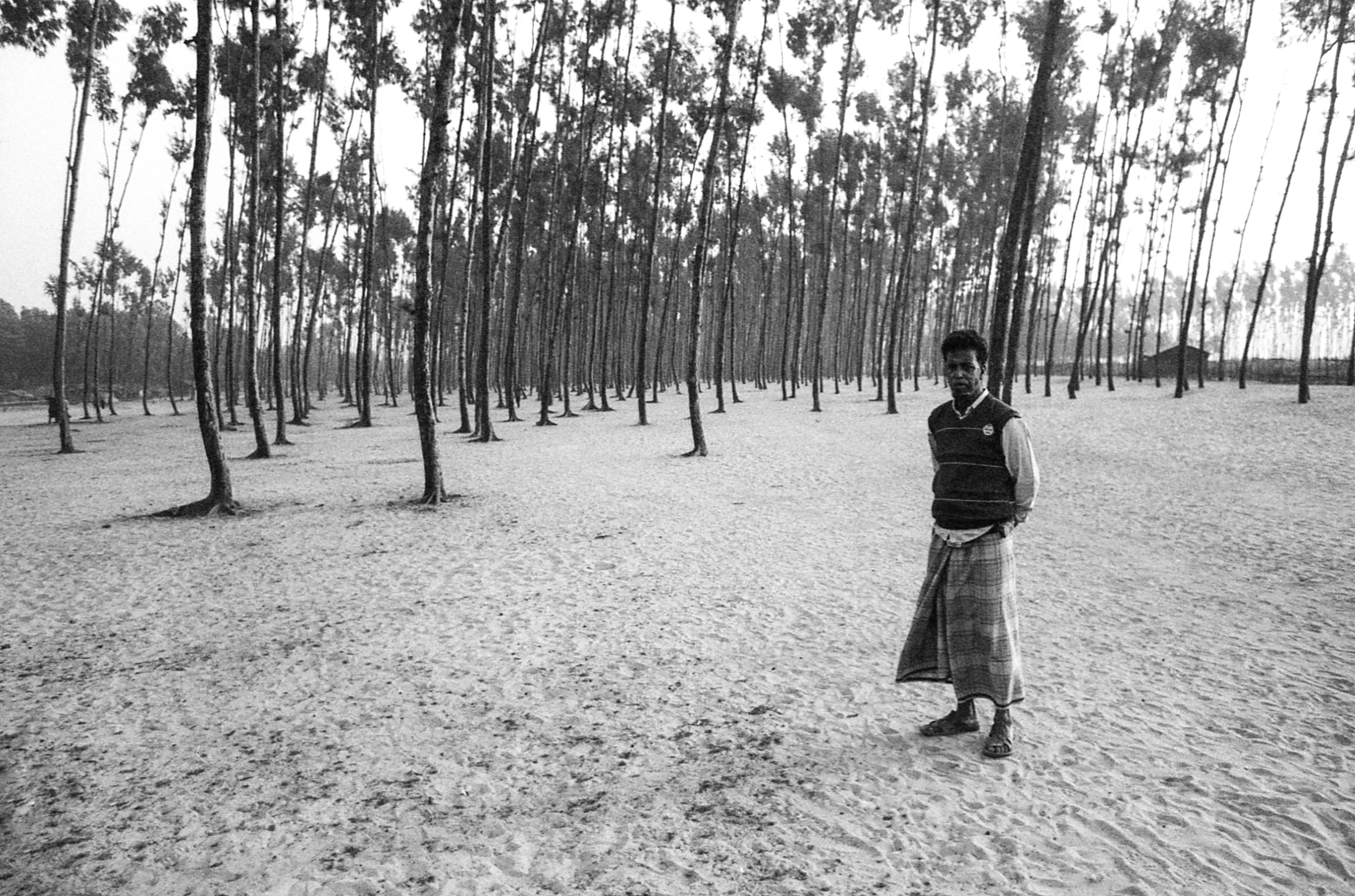The Rohingya are a Muslim minority group who have been residing in the area formerly known as Arakan State (now Rakhine State in western Myanmar) since before the 16th century. Since the introduction of the 1982 Citizenship Act, implemented by the formerly ruling military in the country, they have no longer been recognized as citizens by their own government and have been rendered stateless. They have been stripped of their citizenship and denied their political and human rights. Today, there are roughly 3 million Rohingya scattered across the globe who have no place to call home. According to UN statistics, the Rohingya are one of the most persecuted minorities in the world. Furthermore, recent investigations have pointed to a planned, decades-long genocide committed by the Myanmar military and government against the Rohingya.
Even with a supposedly democratic party taking office in November of 2015, led by Aung San Suu Kyi, the Myanmar government has done nothing to quell the severe human rights abuses that the Rohingya face on a daily basis. The Rohingya need our help. The genocide must end. The Rohingya must be recognized.
#SaveTheRohingya #WeAreRohingya
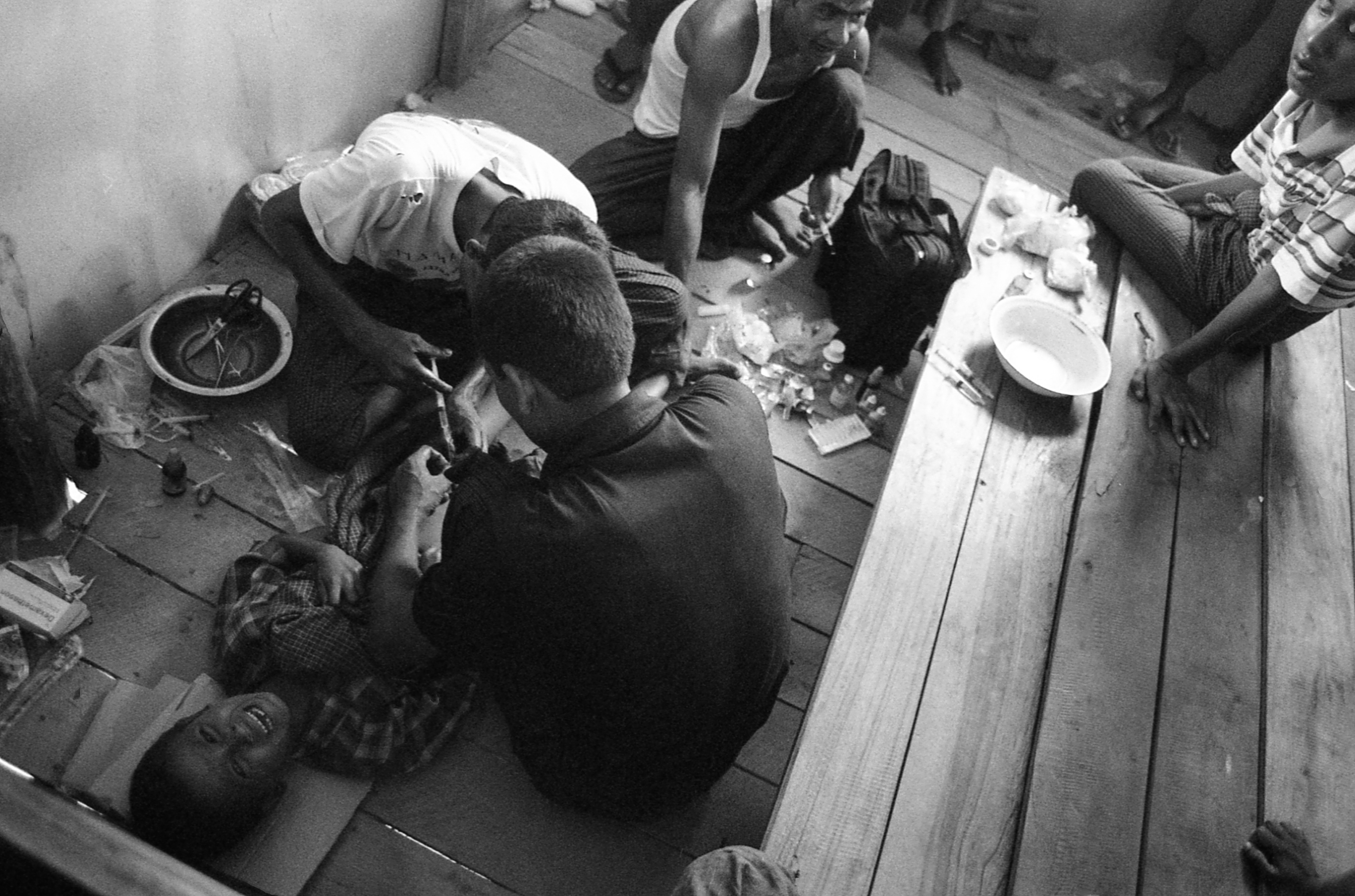
Thakkay Pyin IDP Camp, Myanmar. In an abandoned school, a boy cries verses from the Quran as he is circumcised.
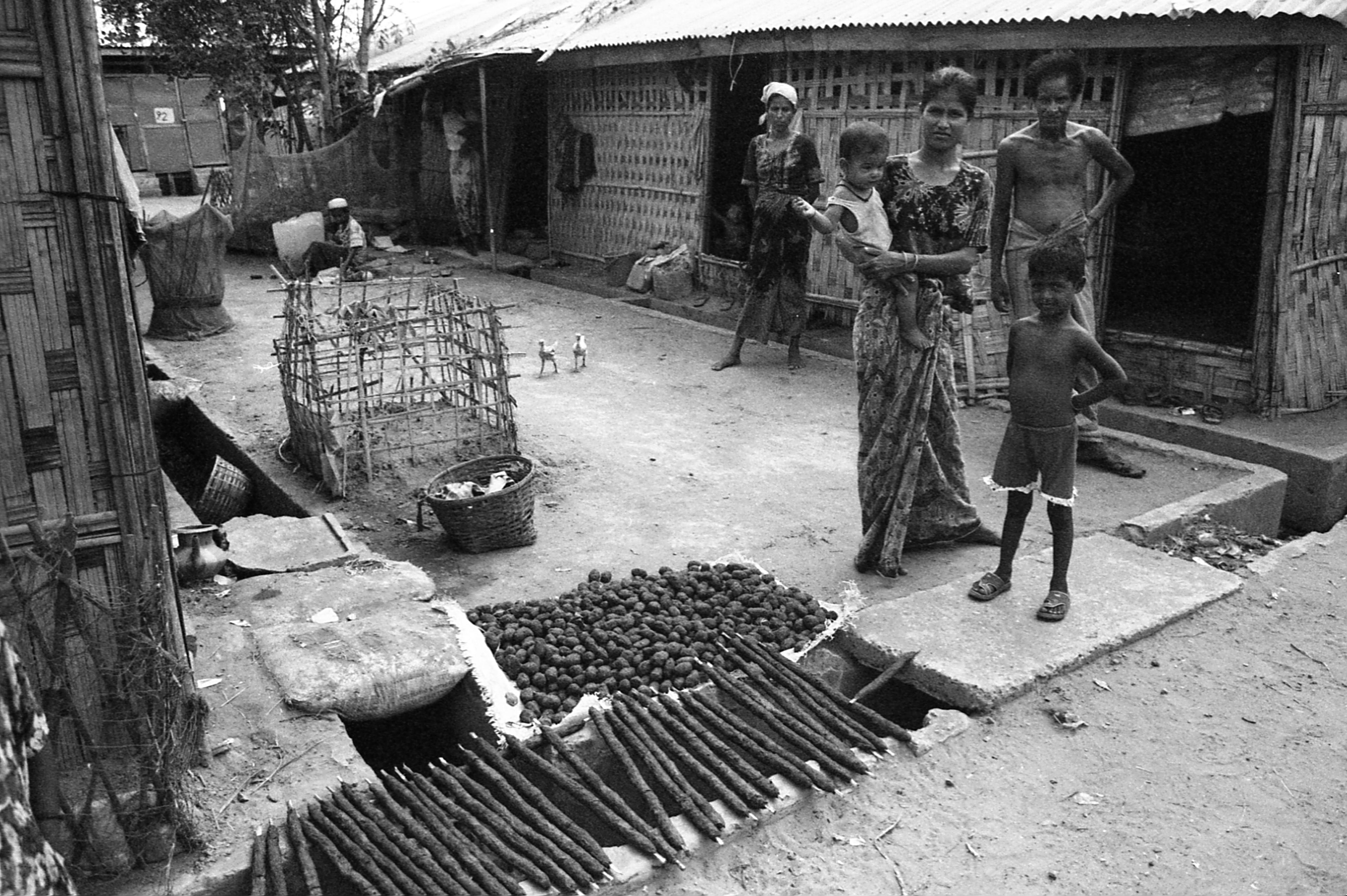
Baw Du Ba IDP Camp, Myanmar. A family dries cattle dung to be used for charcoal.

Baw Du Ba IDP Camp, Myanmar. "Just send us a big boat and get us out of here."
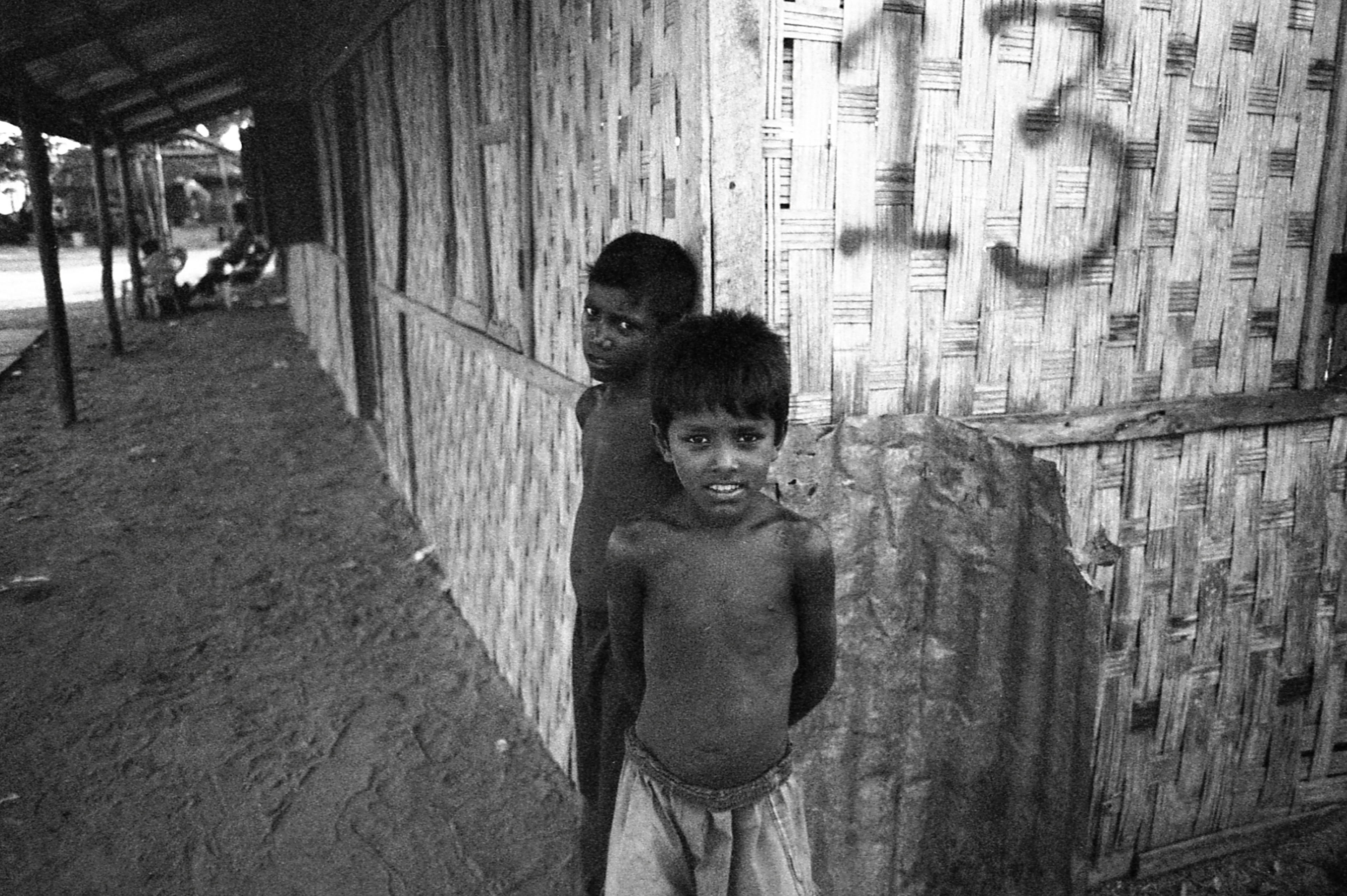
Baw Du Ba IDP Camp, Myanmar. Two boys in front of another abandoned school.

Baw Du Ba IDP Camp, Myanmar. A Rohingya woman with a big smile in front of her house.
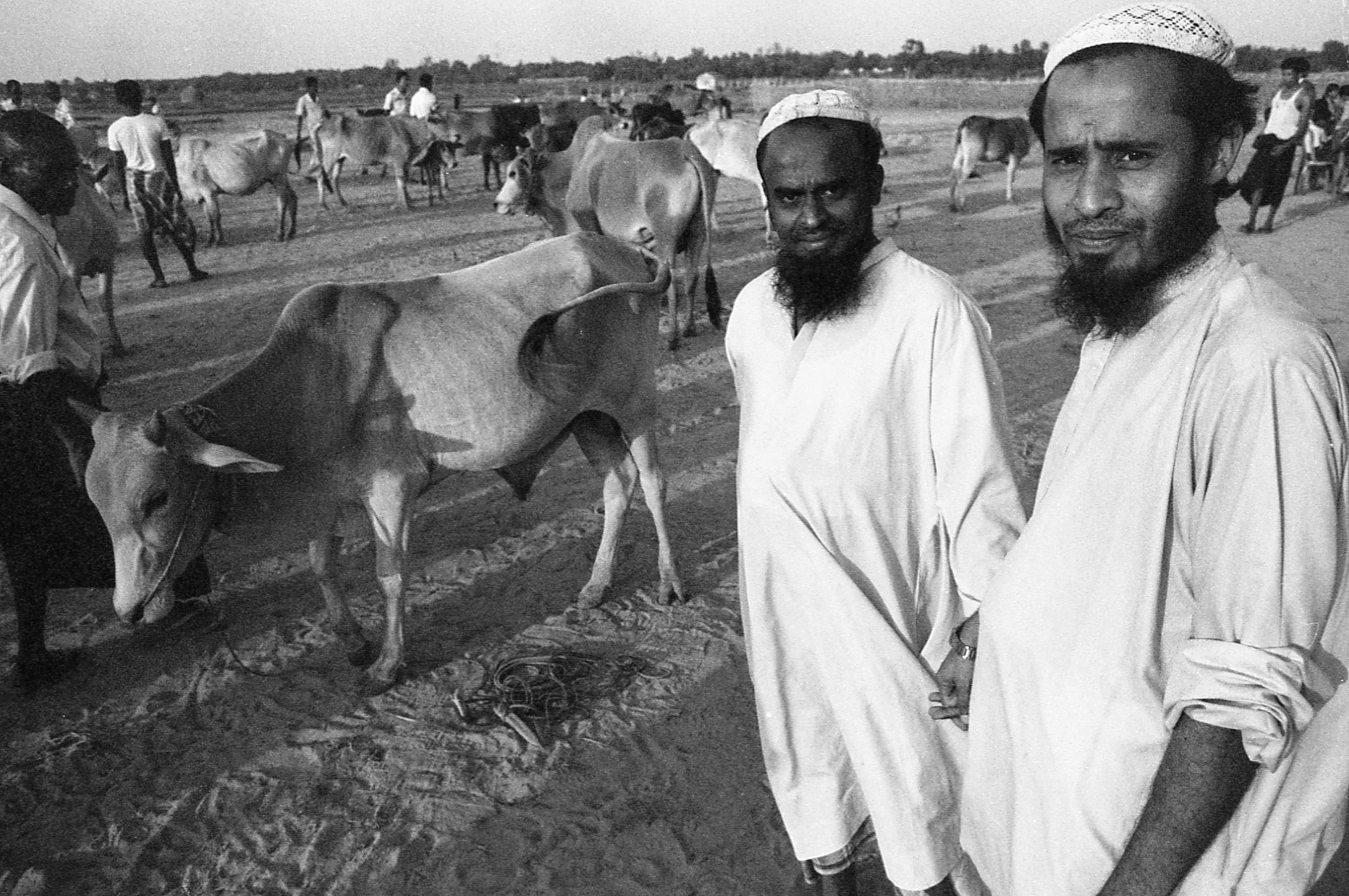
Thakkay Pyin, Myanmar. Two Rohingya men observe the scene at the cattle market outside of their IDP (Internally Displaced Persons) camp.

Shaforidip, Bangladesh. At the very southernmost tip of mainland Bangladesh, some Rohingya families have found refuge here.
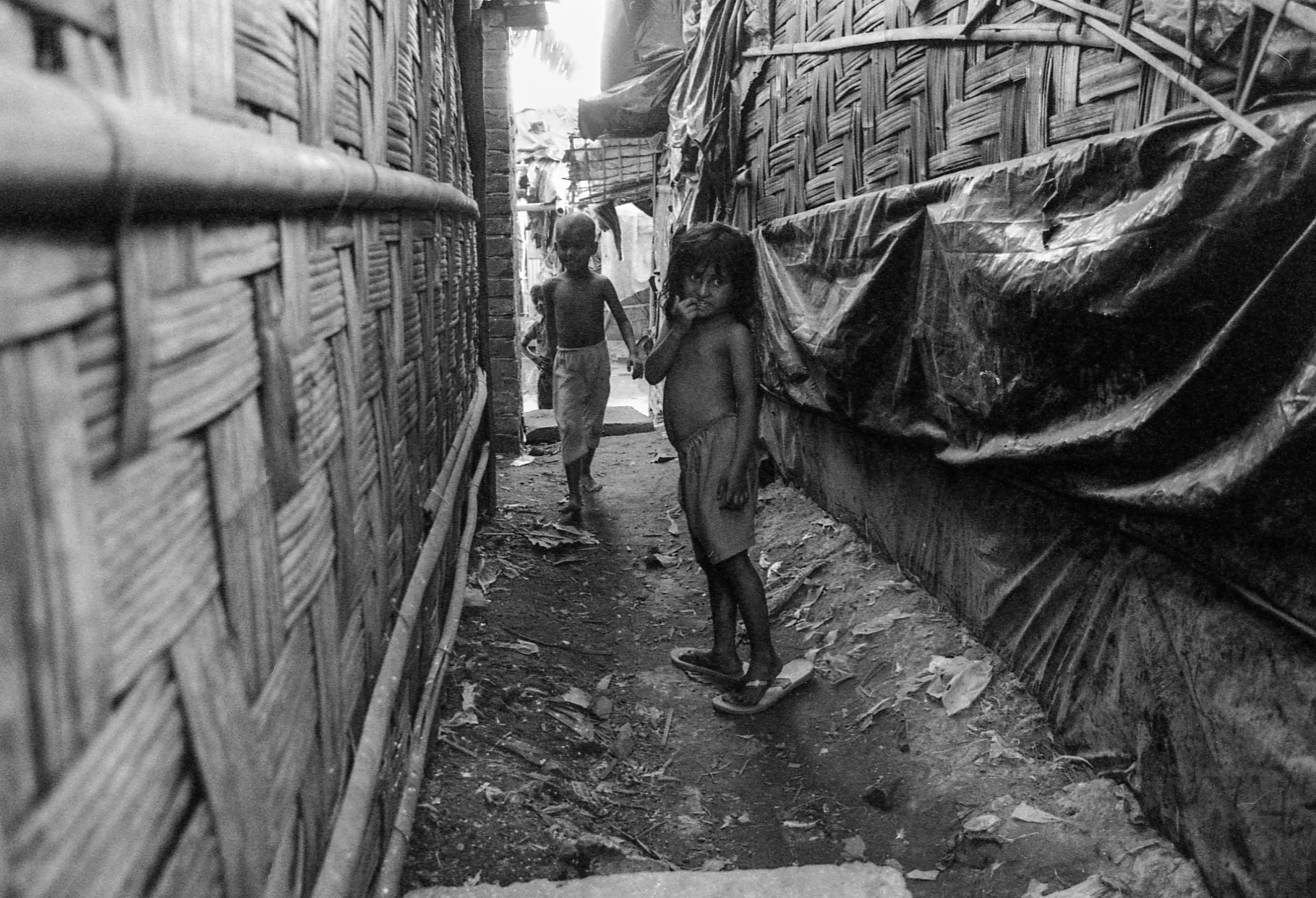
Leda Camp, Teknaf, Bangladesh. At this unofficial camp for unregistered refugees, more than 20,000 Rohingyas live.
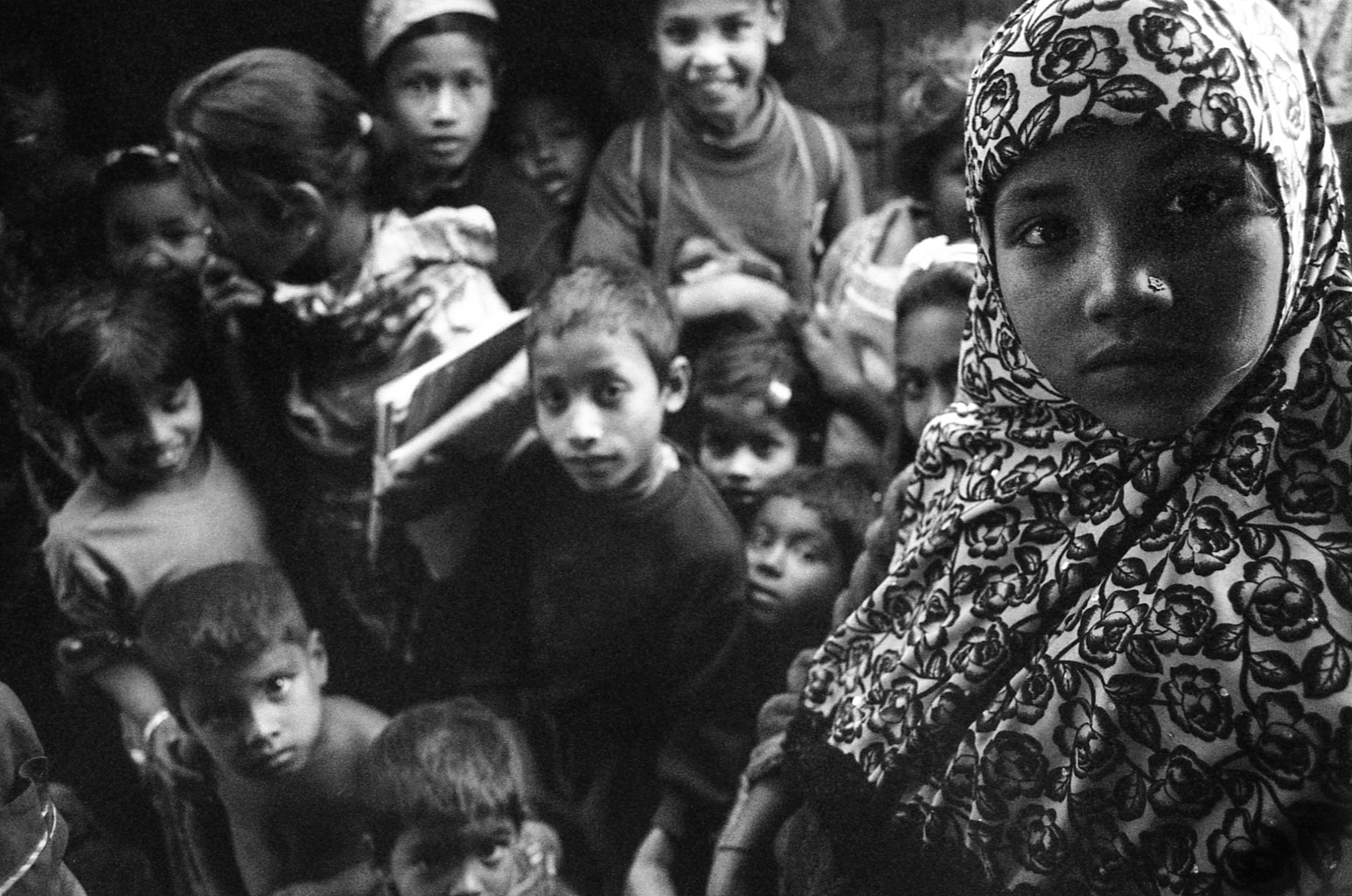
Leda Camp, Teknaf, Bangladesh. Rohingya kids gathering in the alley for a photo.
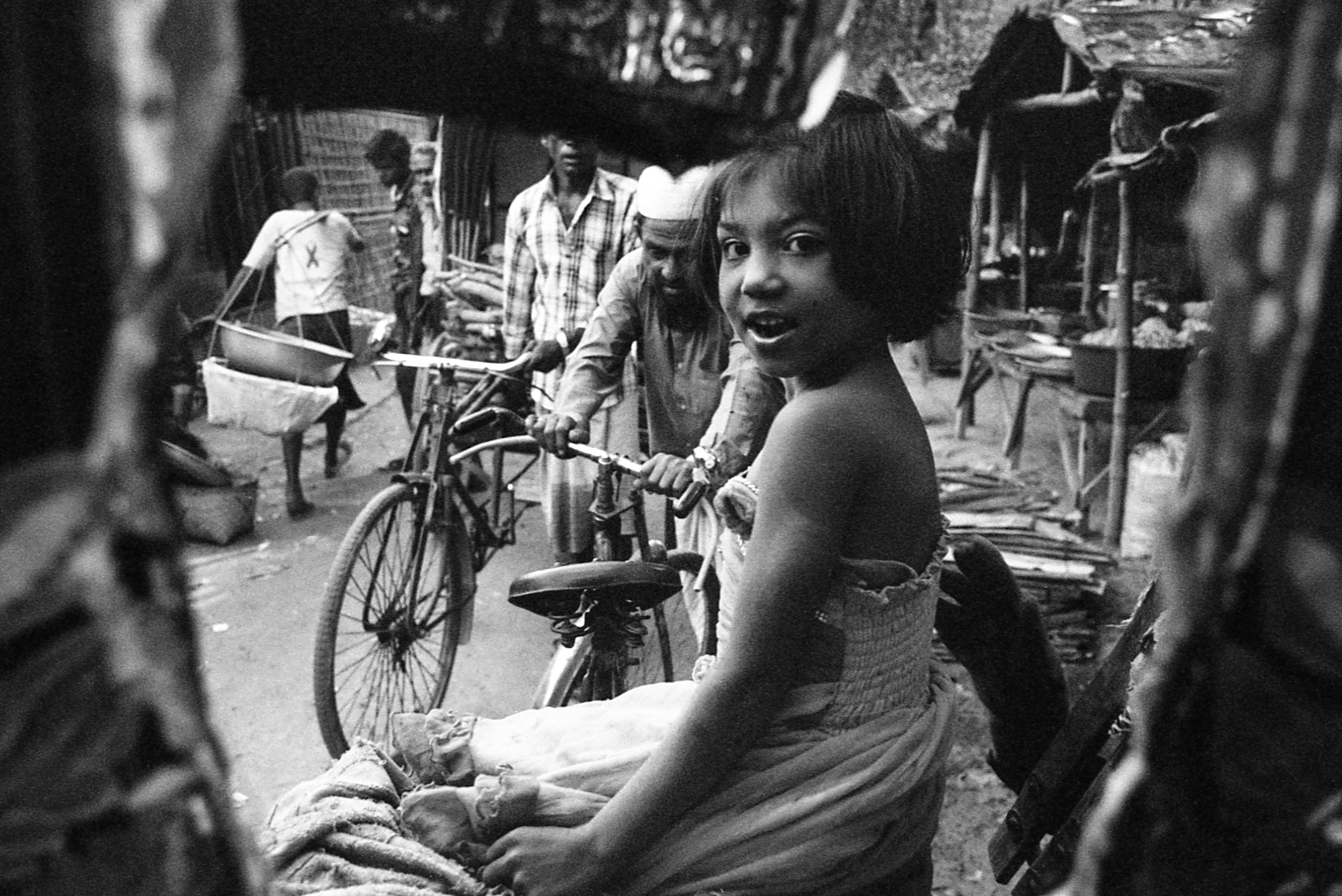
Leda Camp, Teknaf, Bangladesh. A young girl peers through the back of her father's bicycle rickshaw. Many Rohingya risk arrest or worse by seeking employment in the bigger towns like Teknaf or Nhila, a few kilometers each outside of camp.
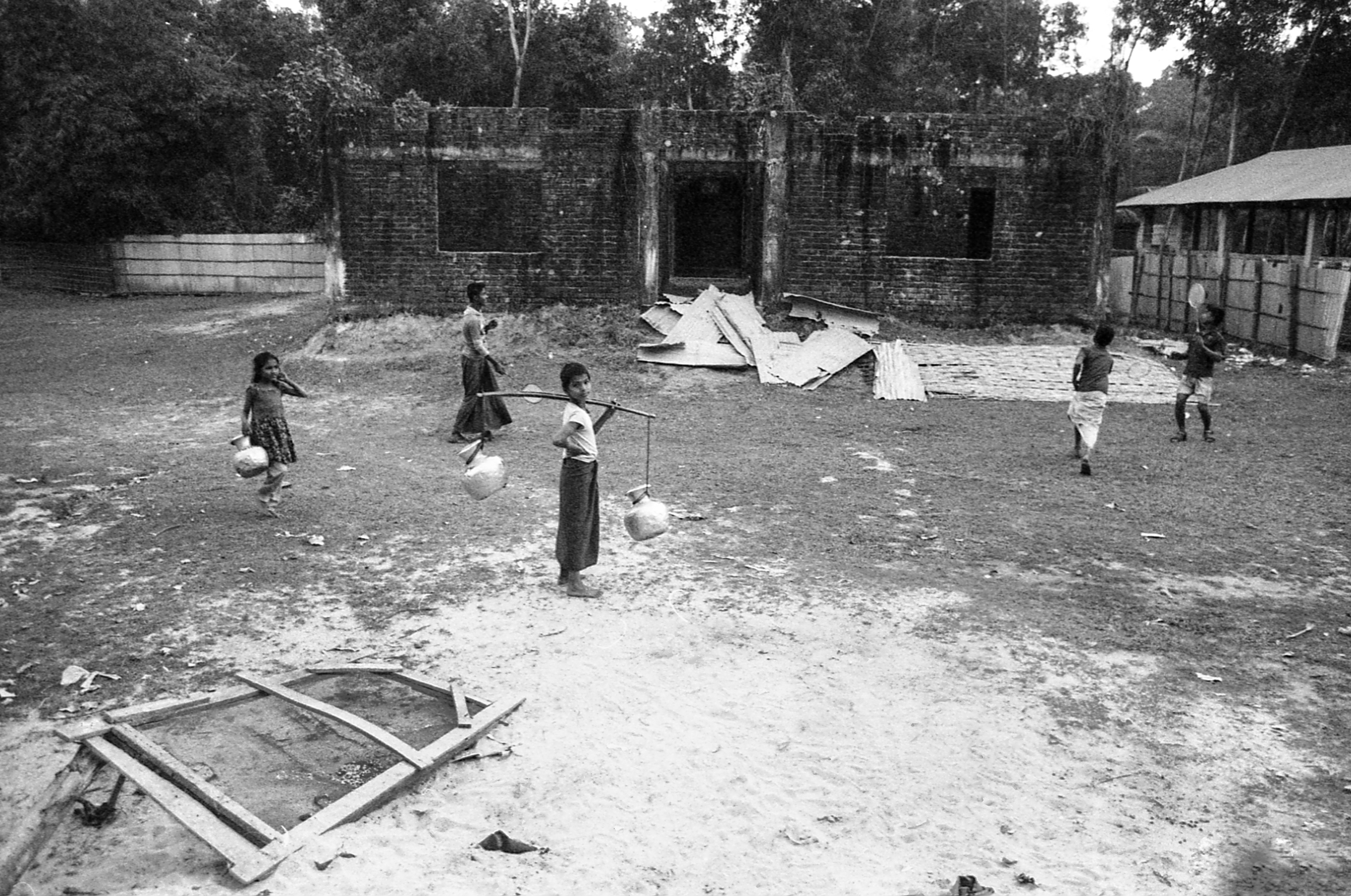
Leda Camp, Teknaf, Bangladesh. Several children bring home jugs of water while others play badminton near the entrance to camp.
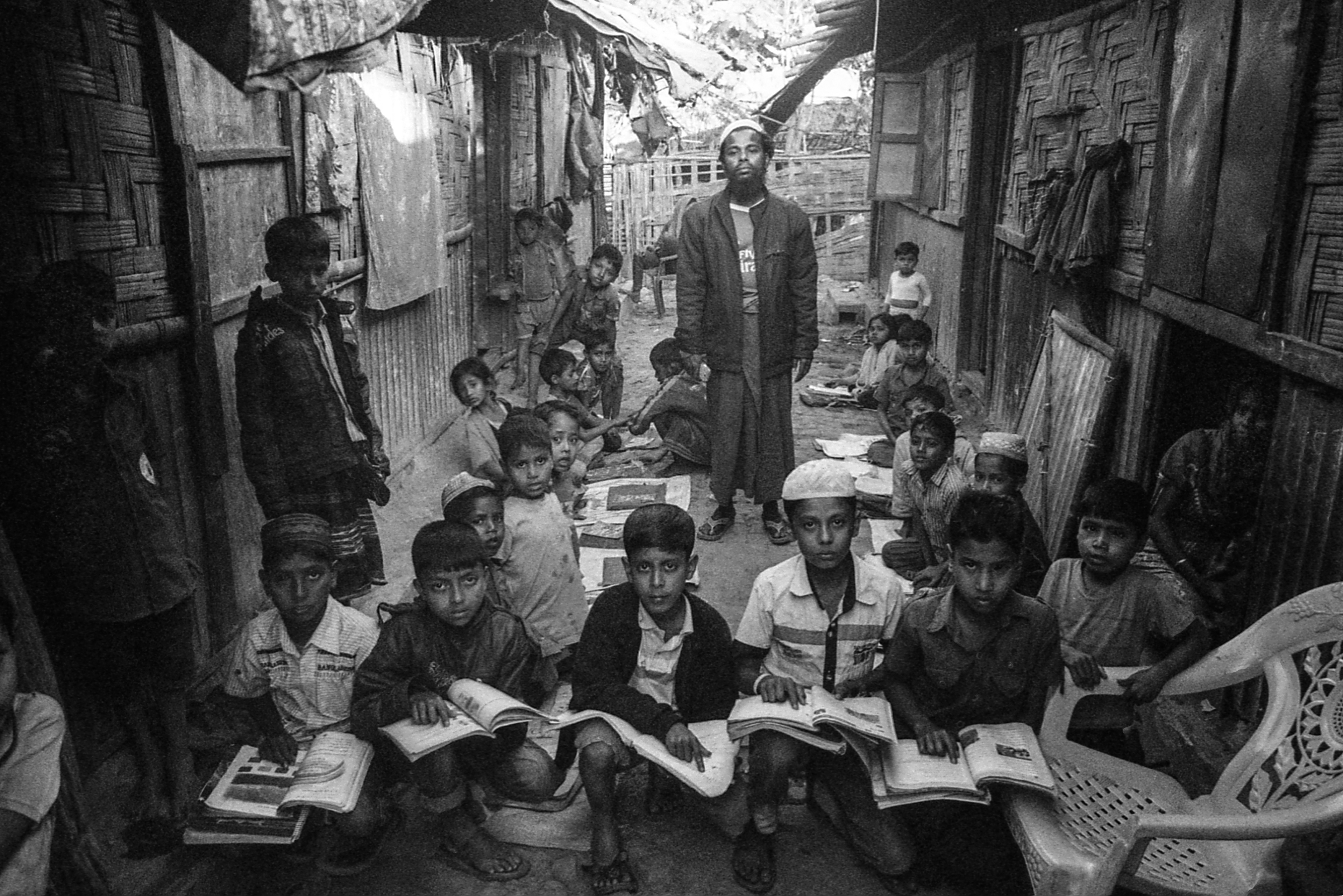
Leda Camp, Teknaf, Bangladesh. With no access to proper educational facilities, many Rohingya families rely on the generosity of teachers like Abdul Majid (center), who offers free lessons outside of his home in the camp.
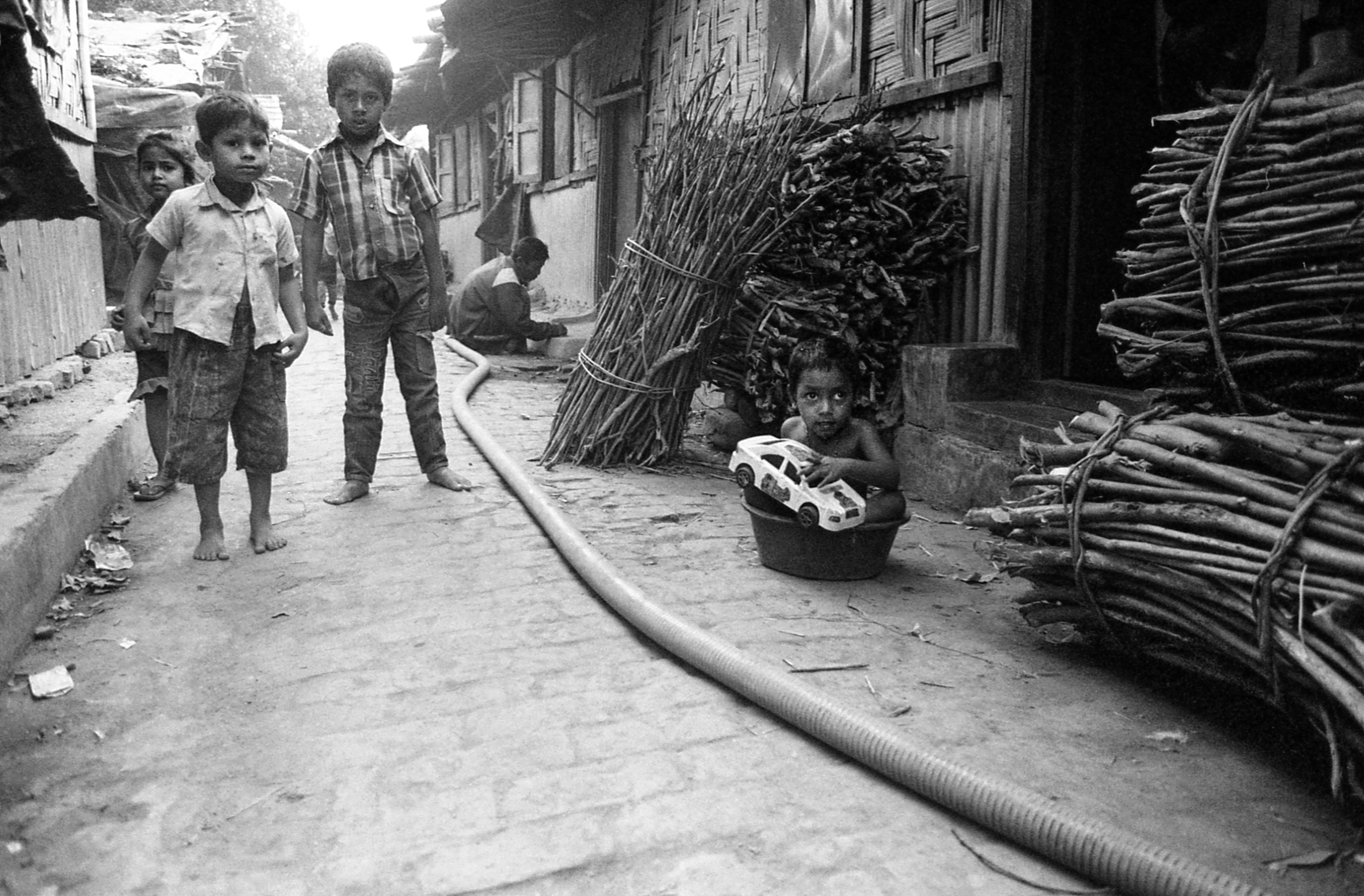
Leda Camp, Teknaf, Bangladesh. Along with education, no formal healthcare is offered for refugees who are not registered with the UNHCR, and many Rohingyas are suffering or dying from curable diseases.

Leda Camp, Teknaf, Bangladesh. Scene in an alleyway.
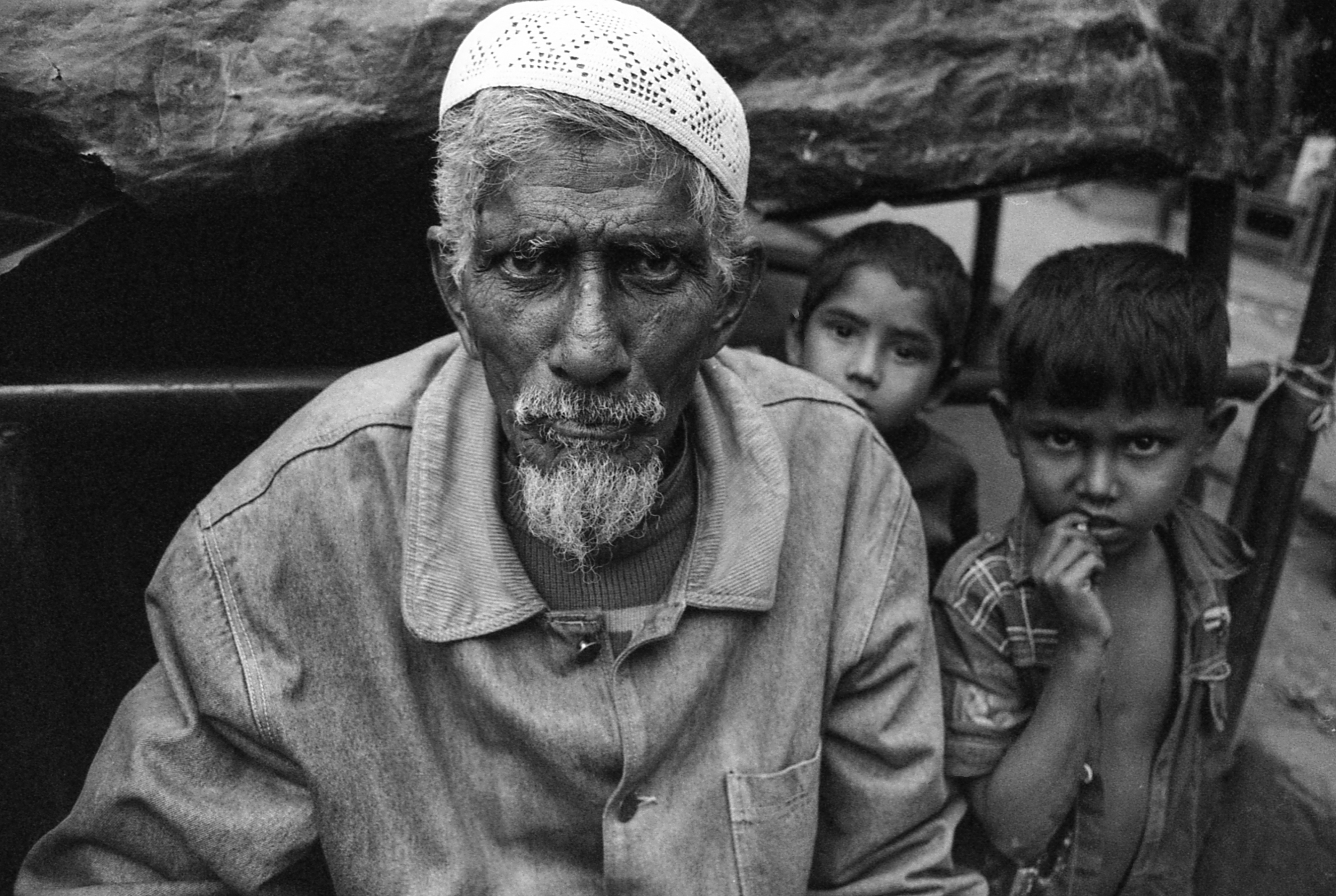
Leda Camp, Teknaf, Bangladesh. Rohingya man and two children.
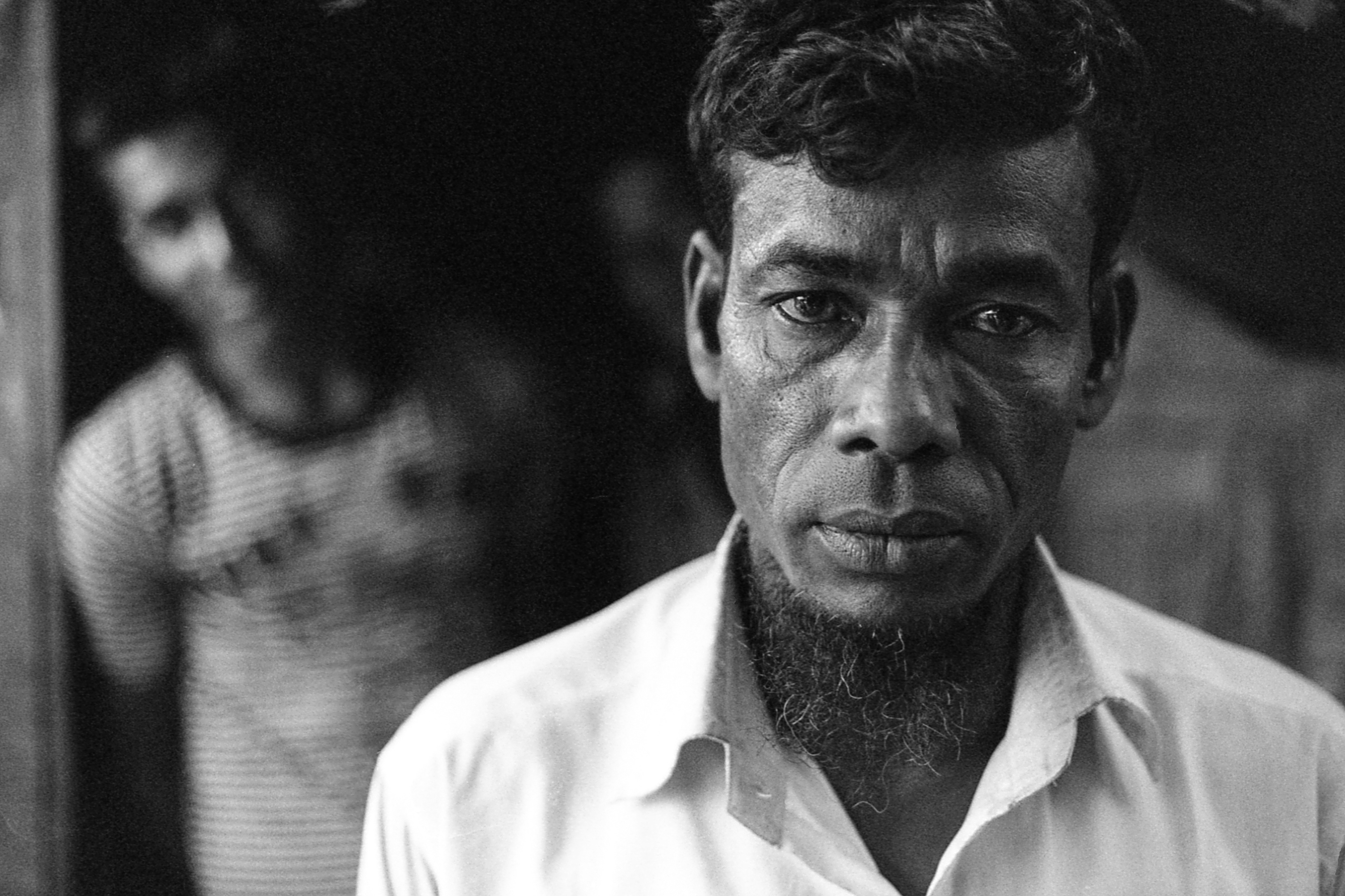
Leda Camp, Teknaf, Bangladesh. Nurul Islam was the chairman of his village in Myanmar for 14 years before he was tortured and expelled from Rakhine State for rebuilding a mosque after the rainy season. For 6 days, he was bound by his hands and feet and beaten, until he managed to escape to Bangladesh. He is pictured here with his son, Shahid, who made an unsuccessful attempt to flee by boat to Malaysia and now works as a photographer on the beach in Cox's Bazar.

Leda Camp, Teknaf, Bangladesh. Women queue up to collect water in jugs marked with their "address," which consists of a block and house number.
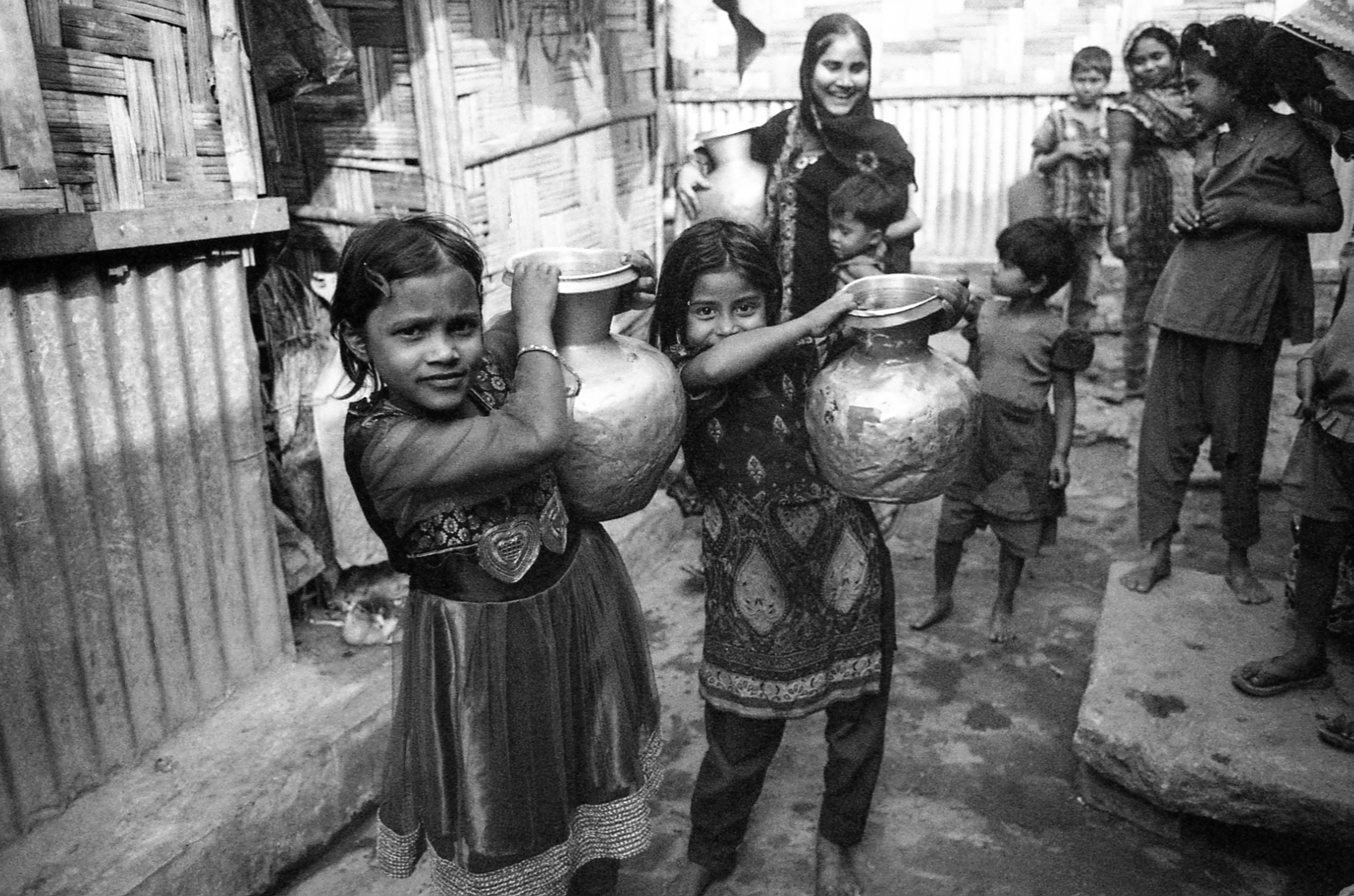
Leda Camp, Teknaf, Bangladesh. Girls coming home with jugs of water.
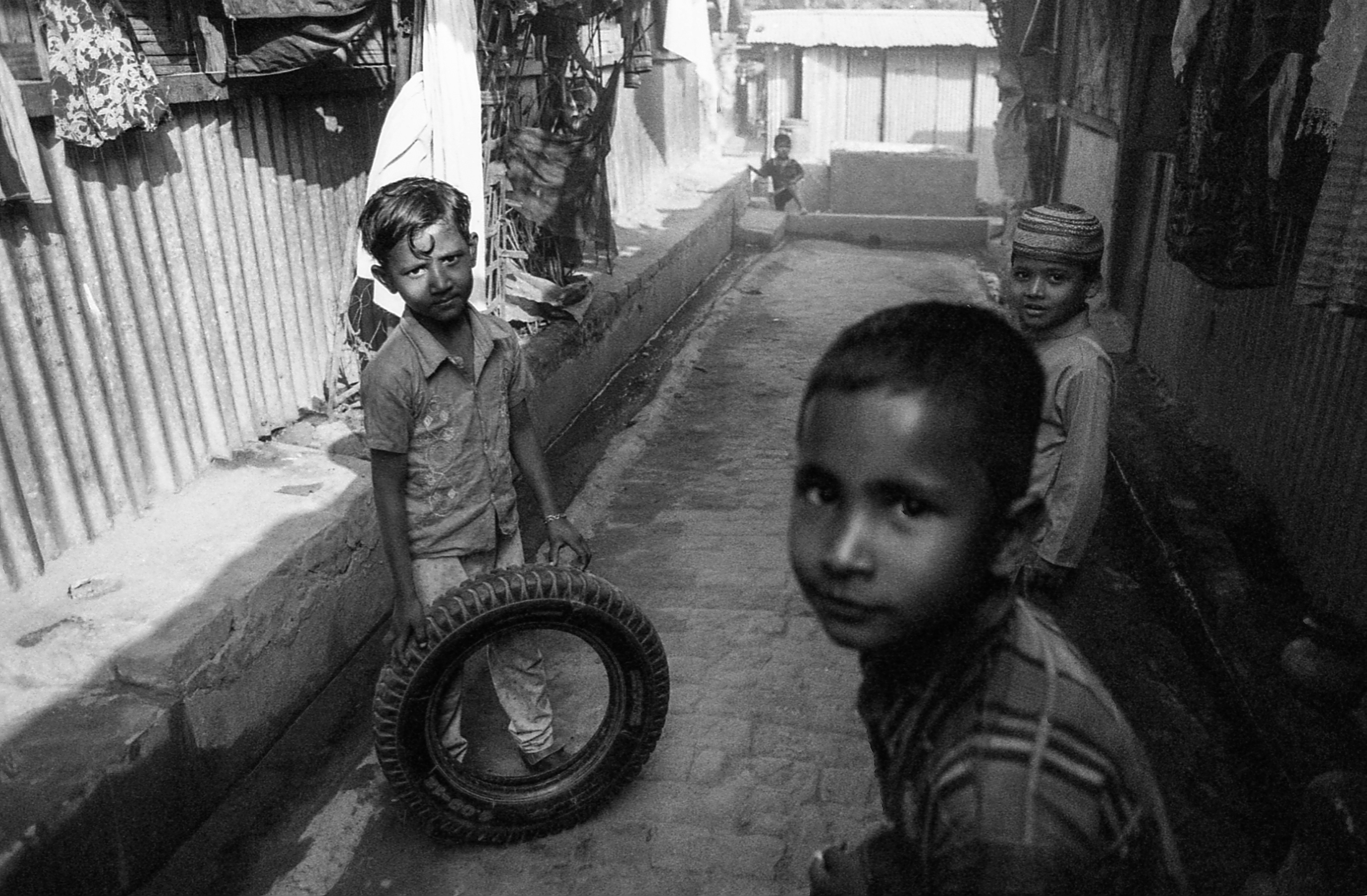
Leda Camp, Teknaf, Bangladesh. Boys play with a rubber tire.

Leda Camp, Teknaf, Bangladesh. Children attending lessons in another makeshift classroom.
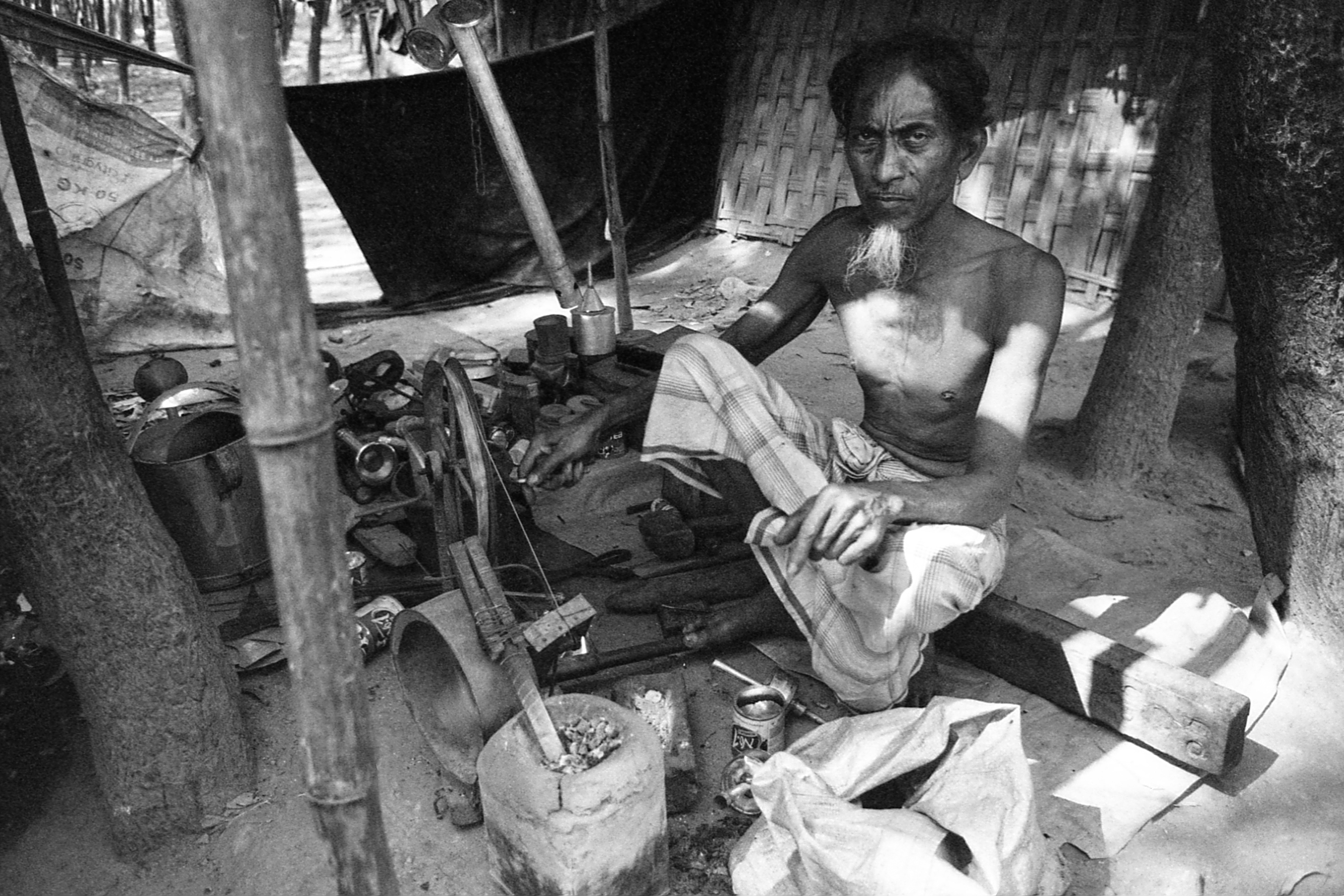
Leda Camp, Teknaf, Bangladesh. Many Rohingyas managed to set up their trades and crafts within camp.

Leda Camp, Teknaf, Bangladesh. A young boy outside his home.
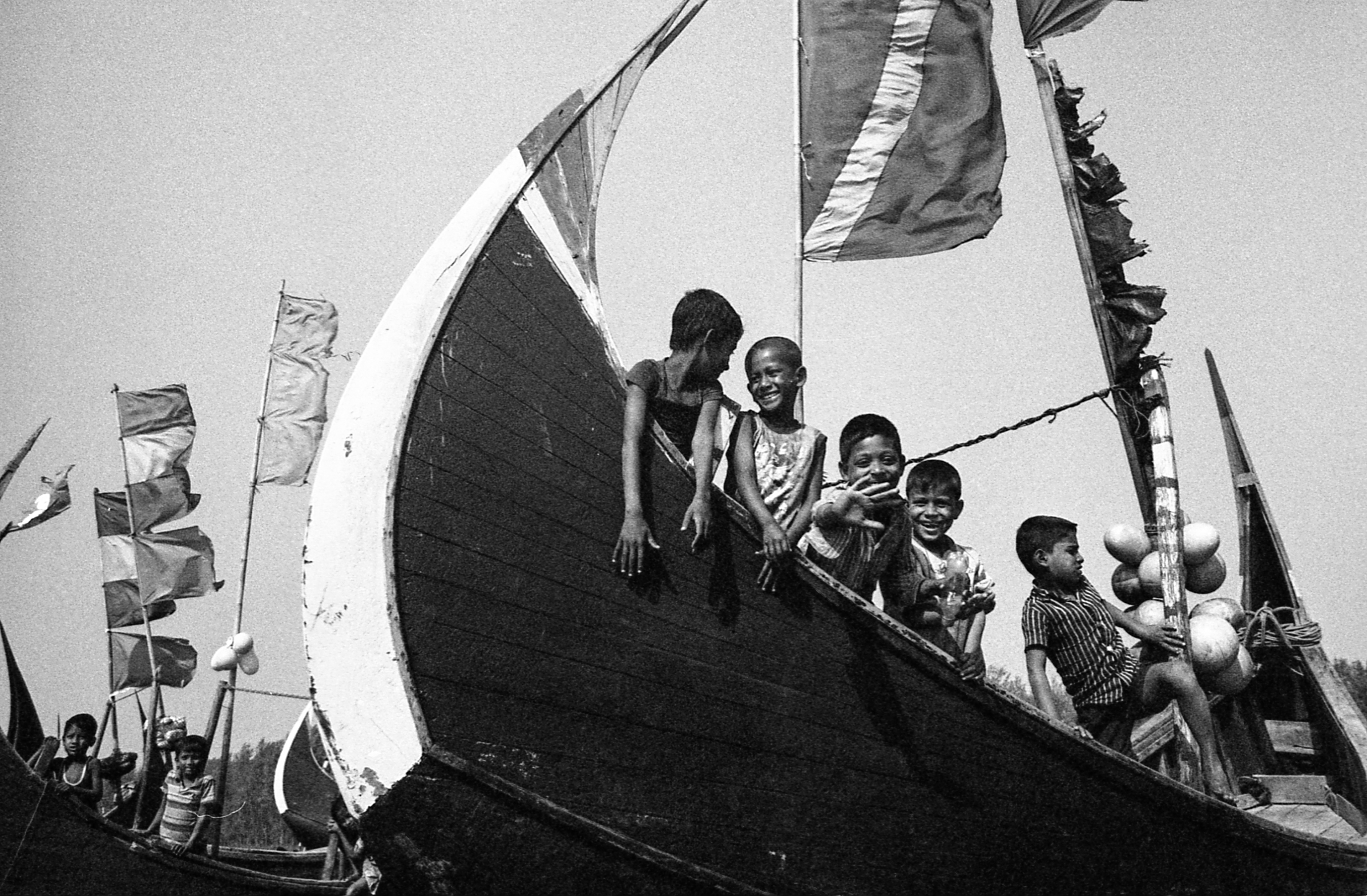
Shamlapur, Bangladesh. Shamlapur is a fishing village on the west coast of the Teknaf peninsula. Of the roughly 12,000 that live here, there are between 3,000 and 7,000 Rohingyas.
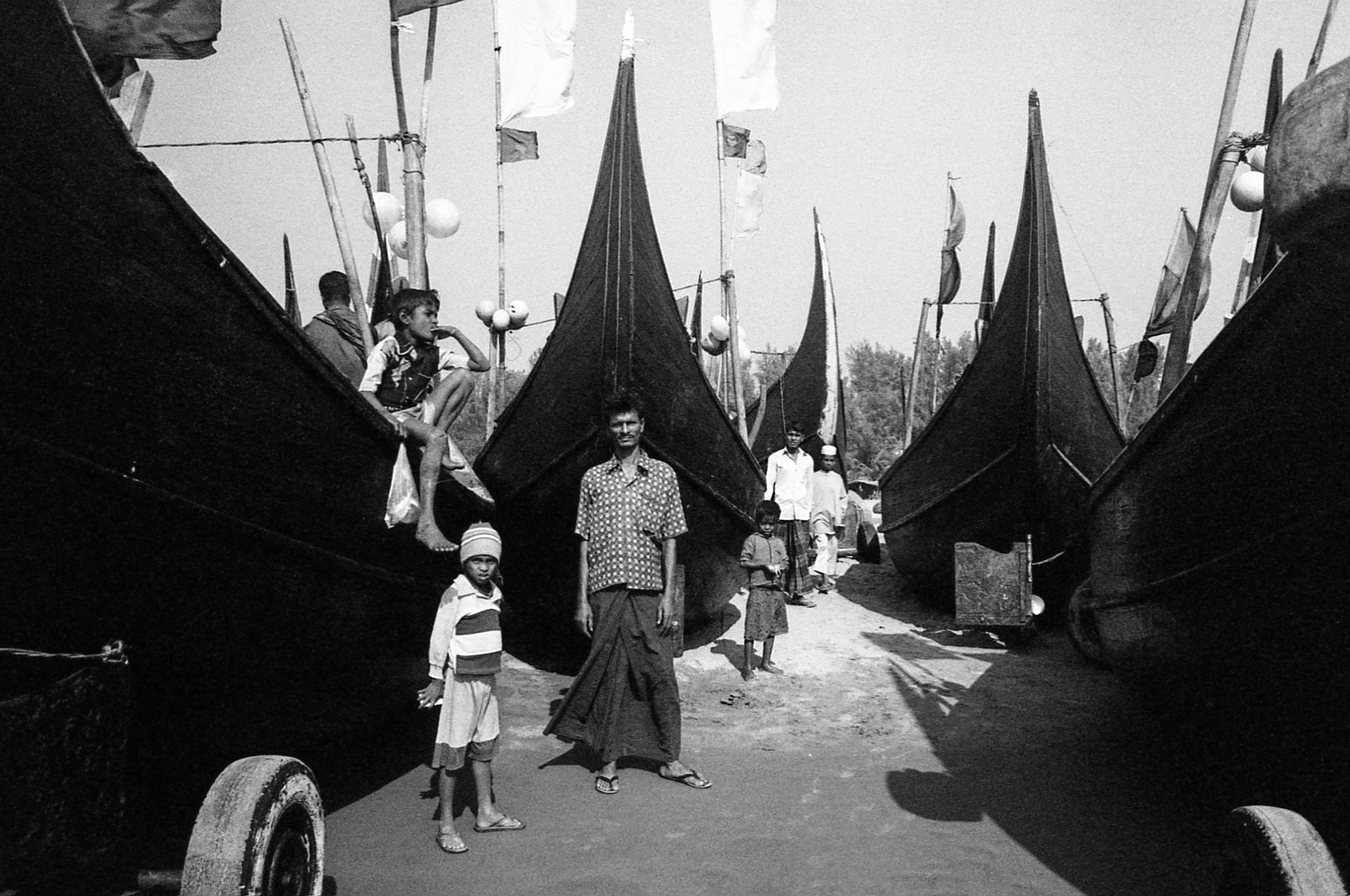
Shamlapur, Bangladesh. A crowd gathers as the fishing boats come in from sea.
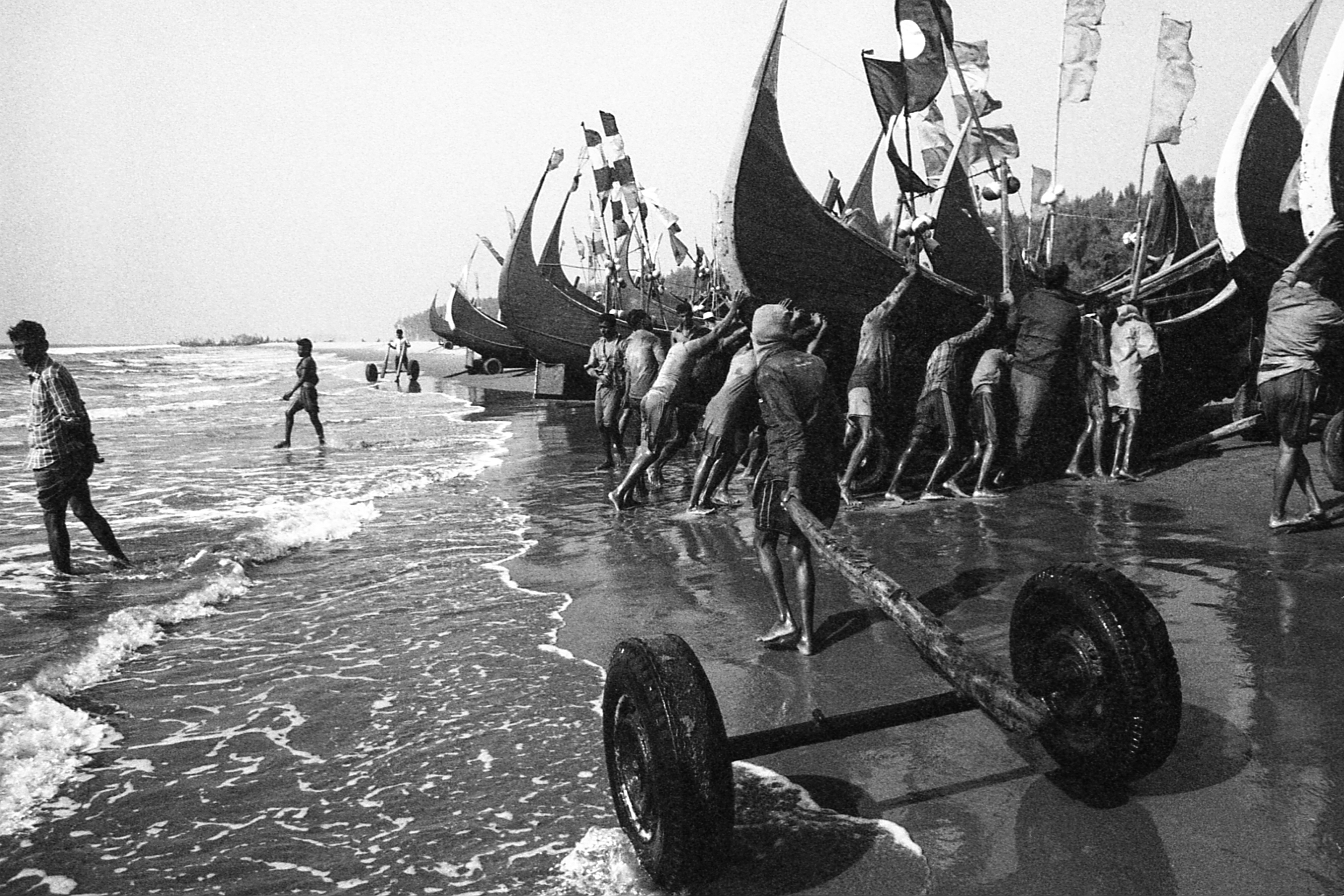
Shamlapur, Bangladesh. Each day starts and ends with a team of men shoving their fishing boats along the beach on makeshift handcarts.

Shamlapur, Bangladesh. Two future fishermen.
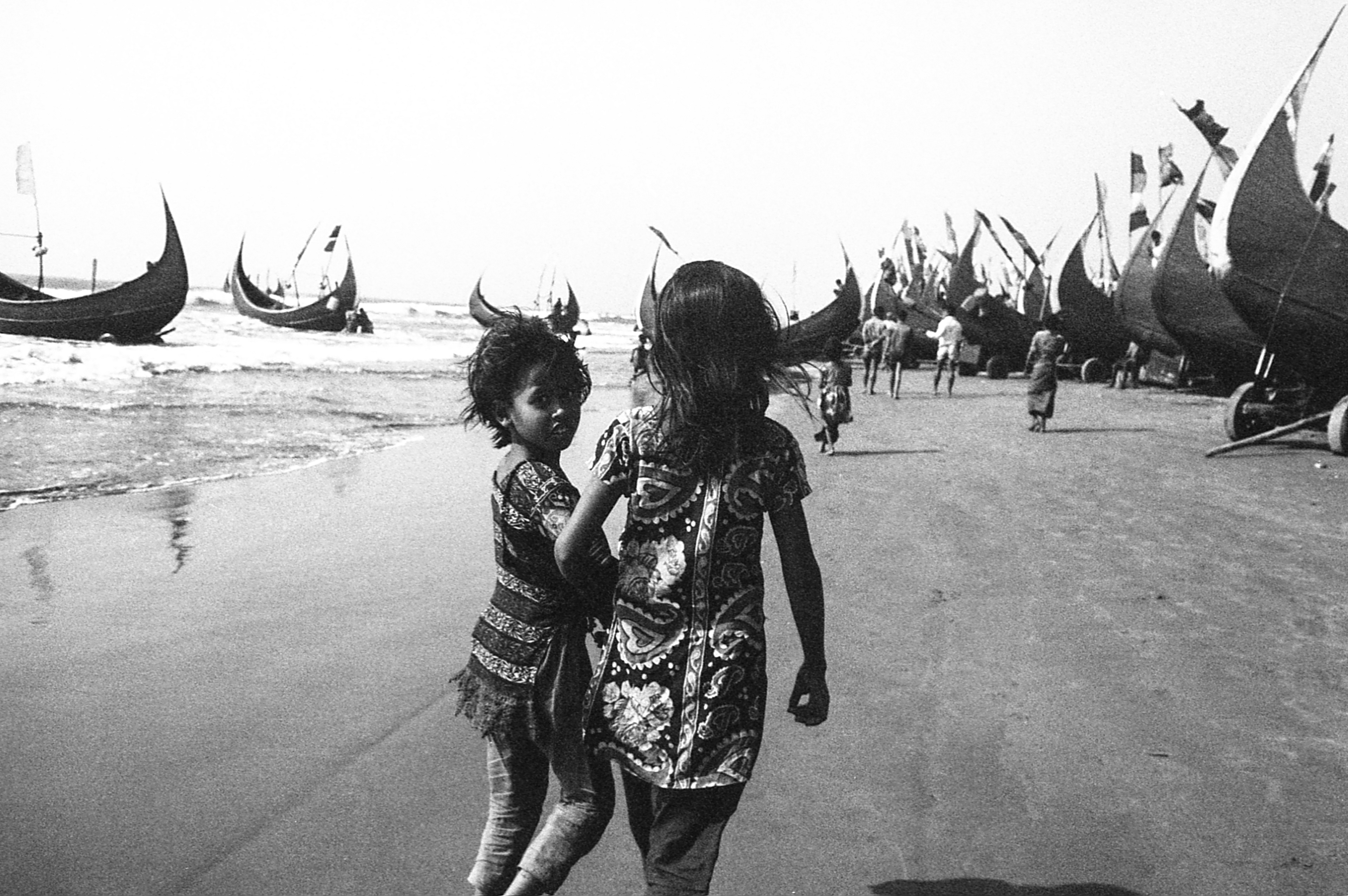
Shamlapur, Bangladesh. Two girls walk along the beach.
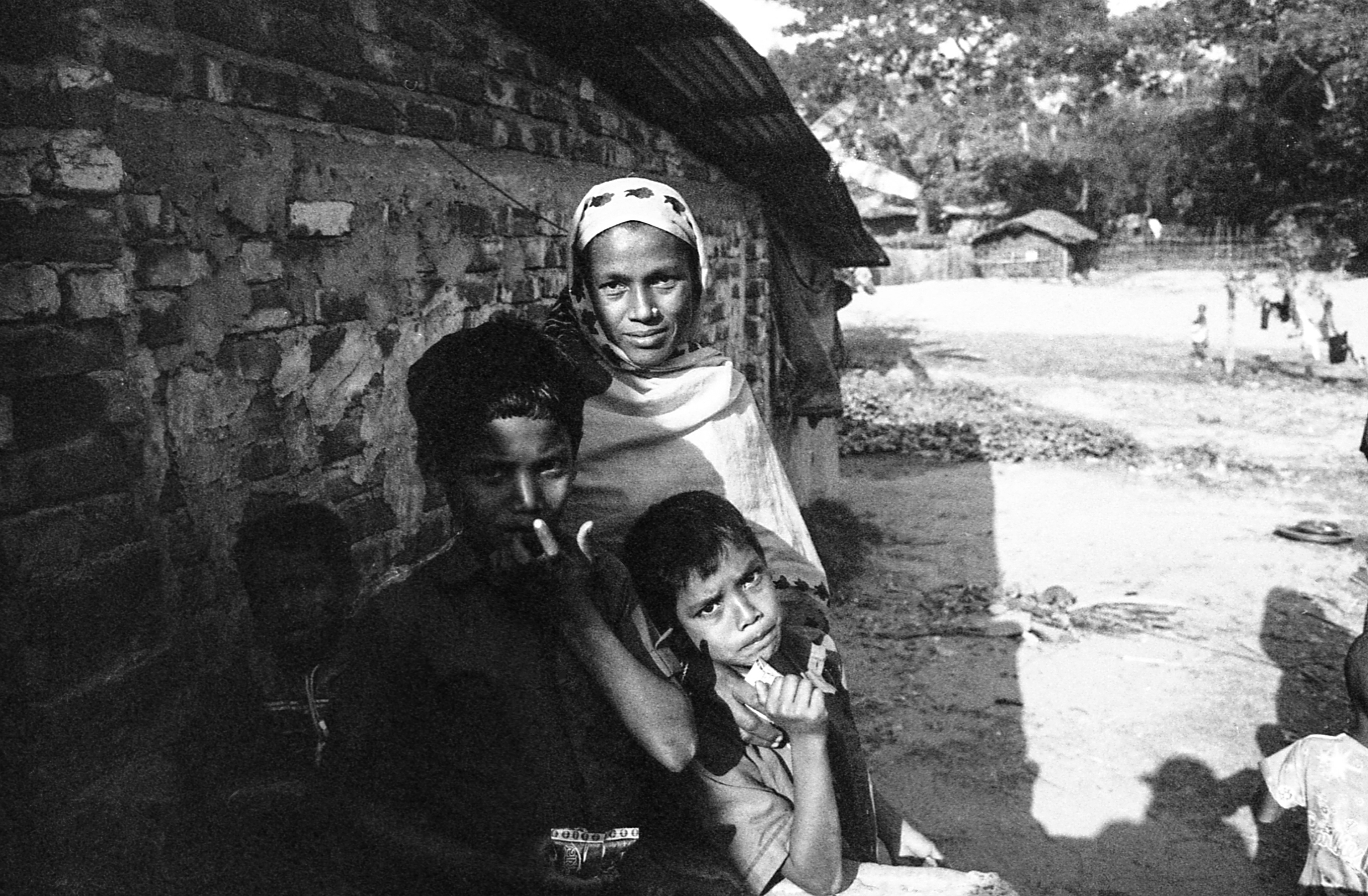
Shamlapur, Bangladesh. A Rohingya woman and children.
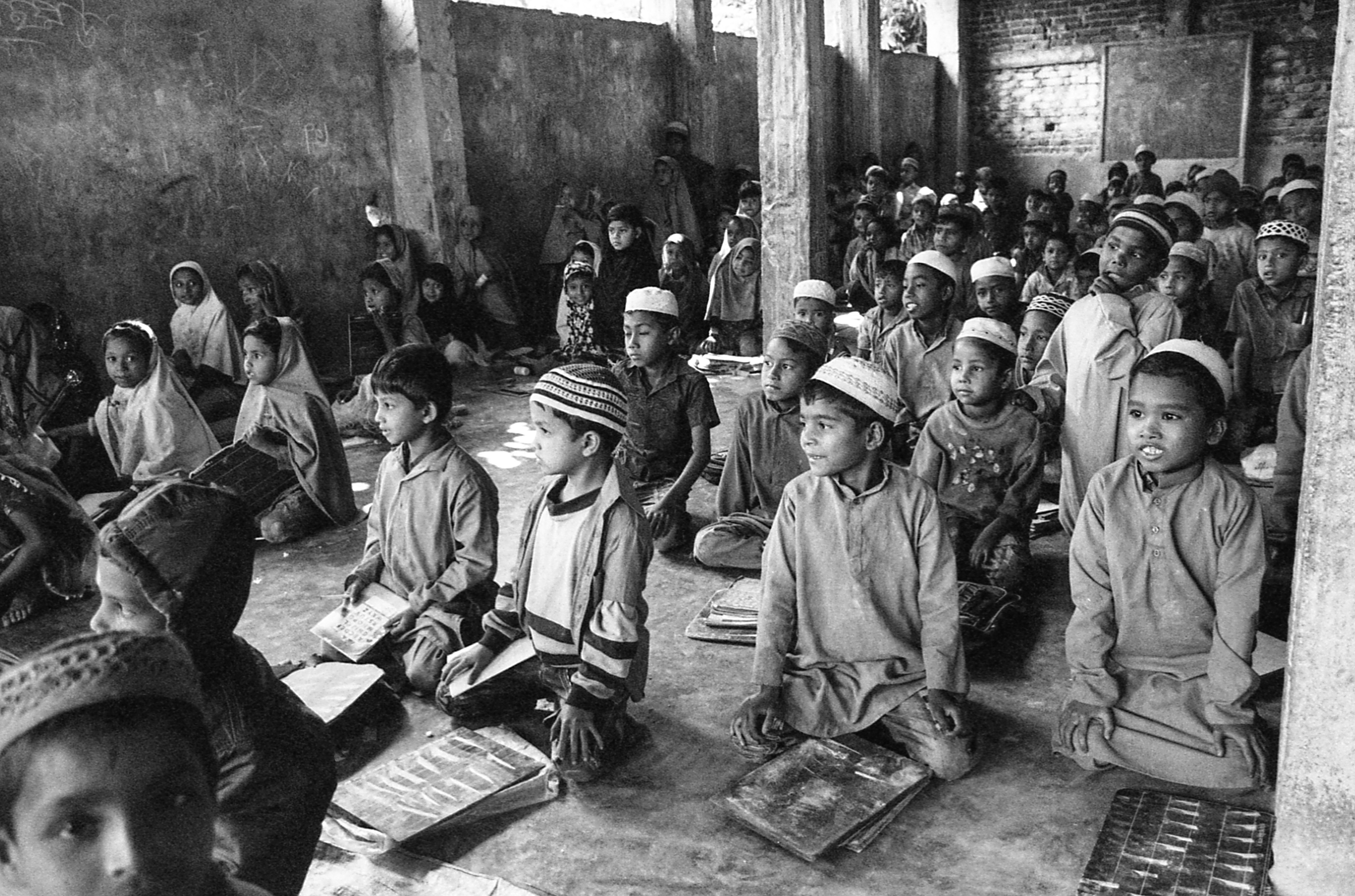
Shamlapur, Bangladesh. A group of teachers here allows Rohingya children to sit in on lessons with the local Bengali kids. They pay about $1-2 USD per month for lessons 6 days a week.
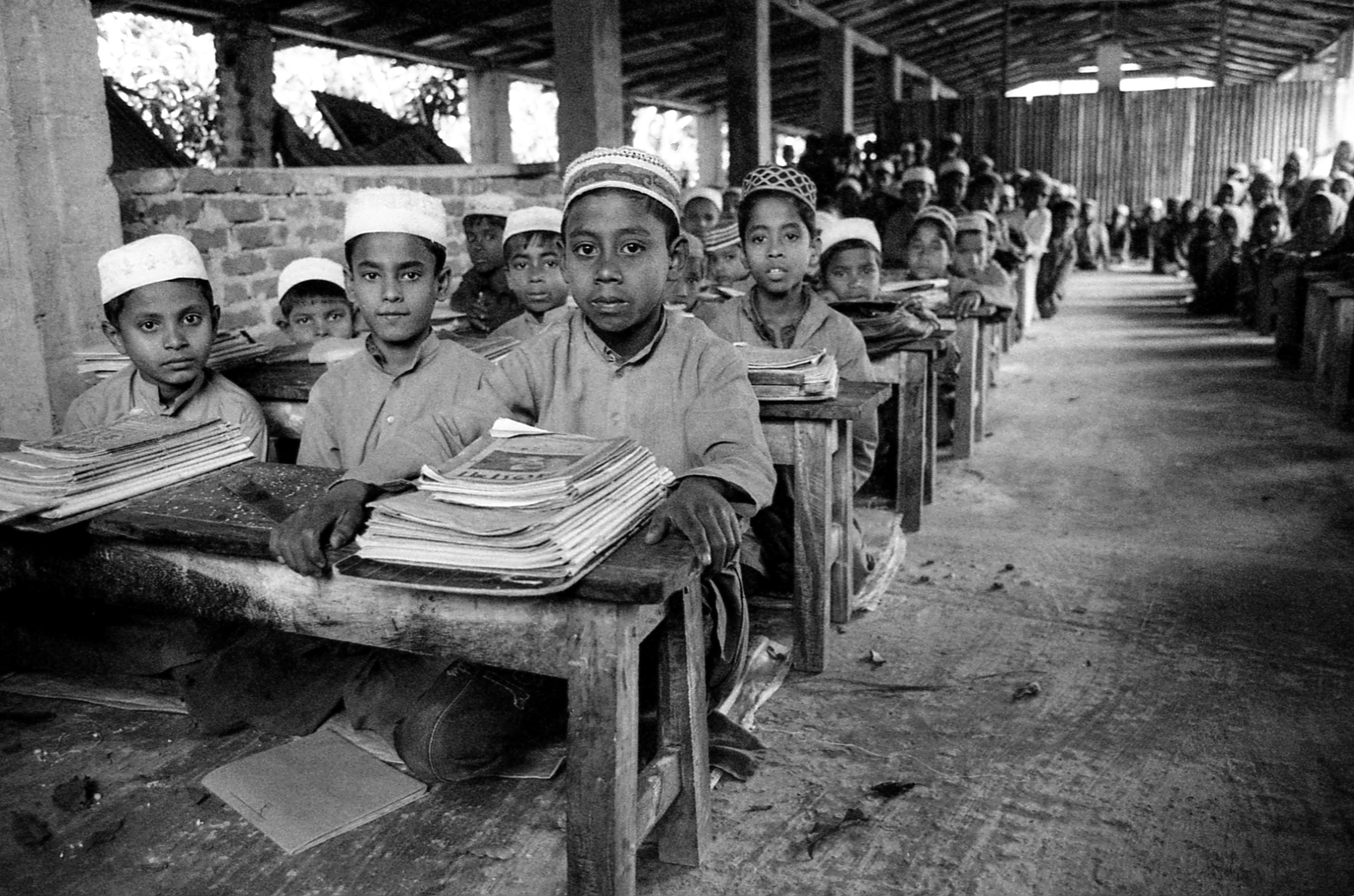
Shamlapur, Bangladesh. The boys side.
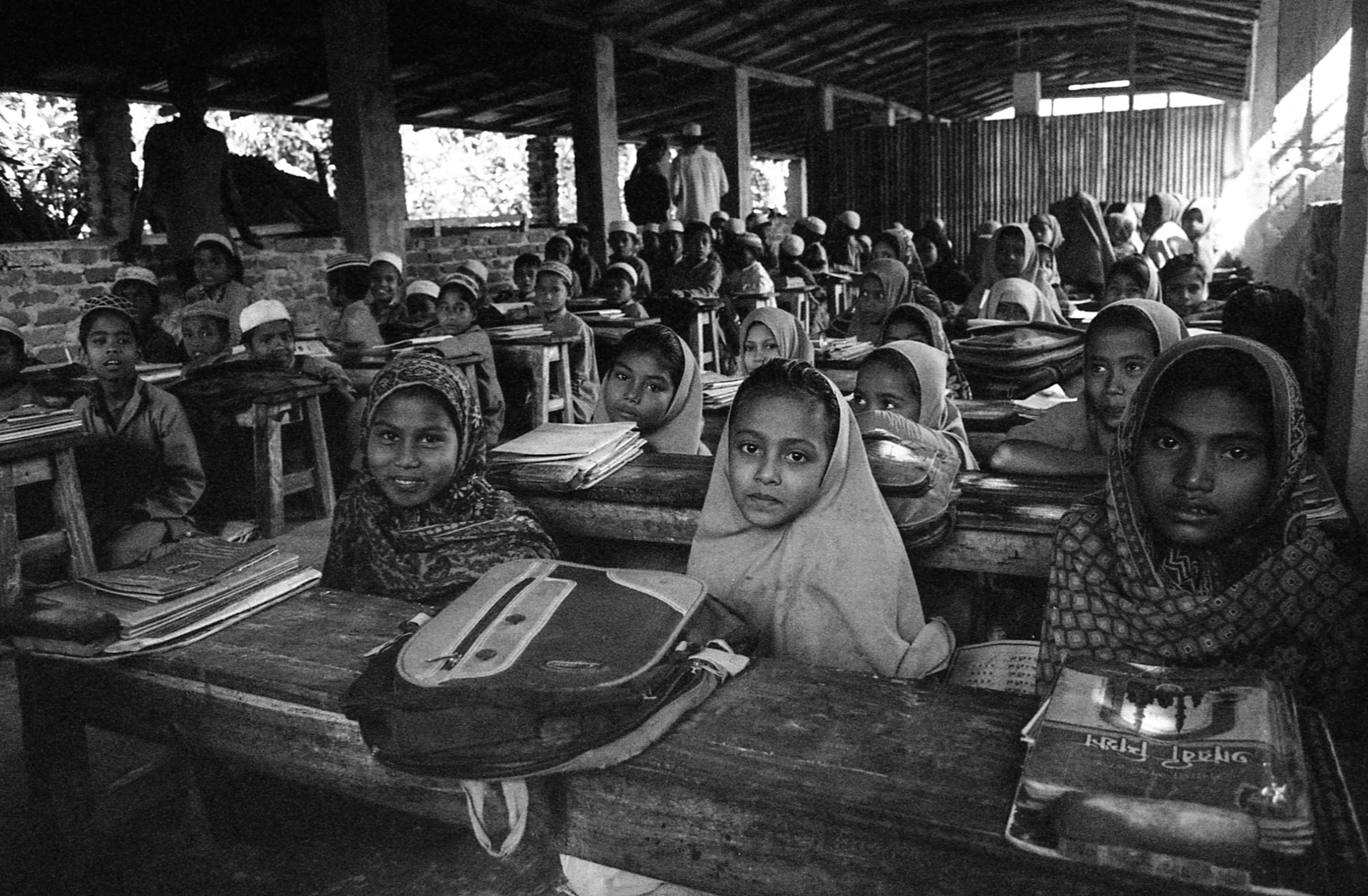
Shamlapur, Bangladesh. The girls side.
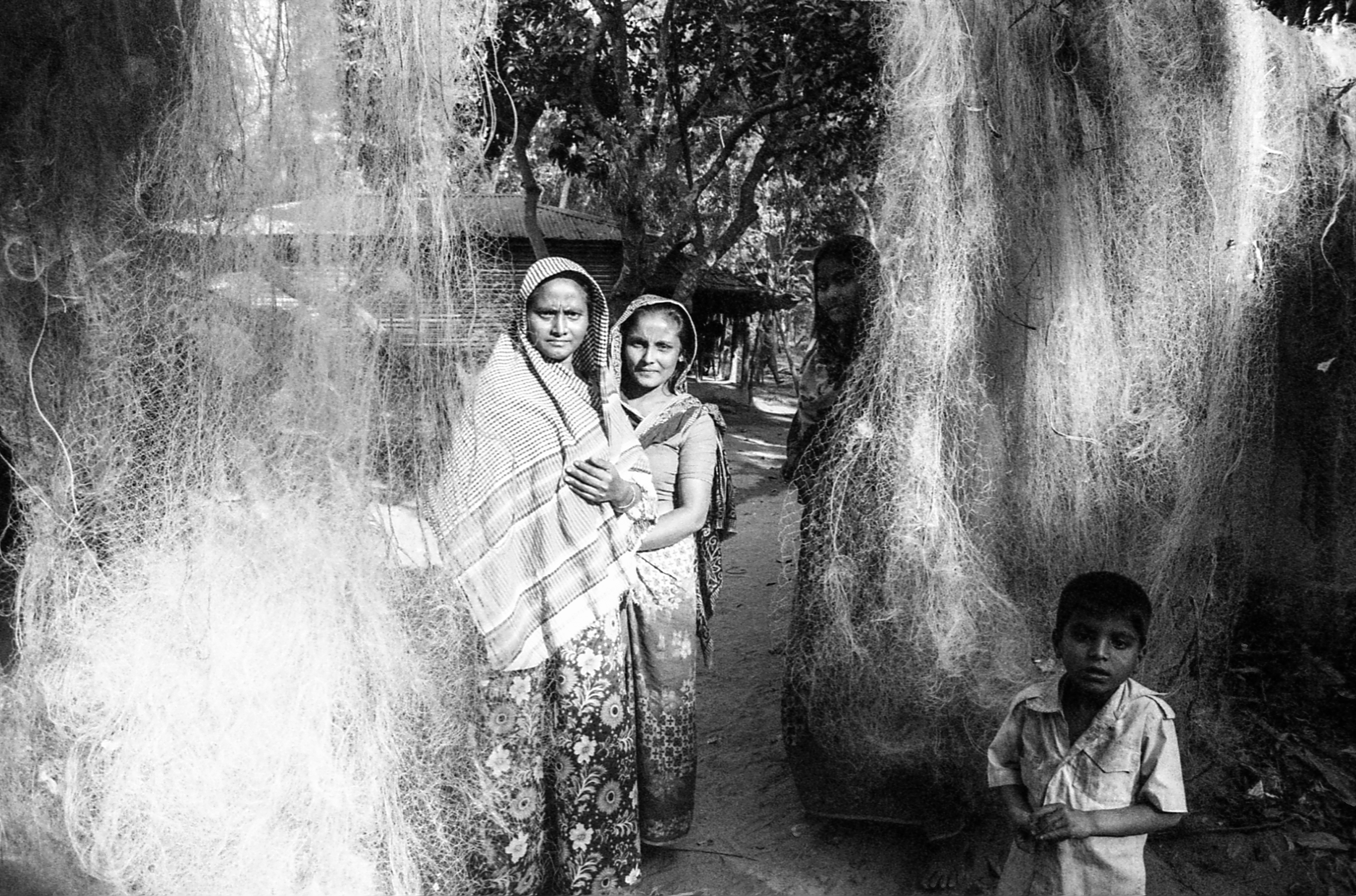
Shamlapur, Bangladesh. A Rohingya family tending to their fishing nets.
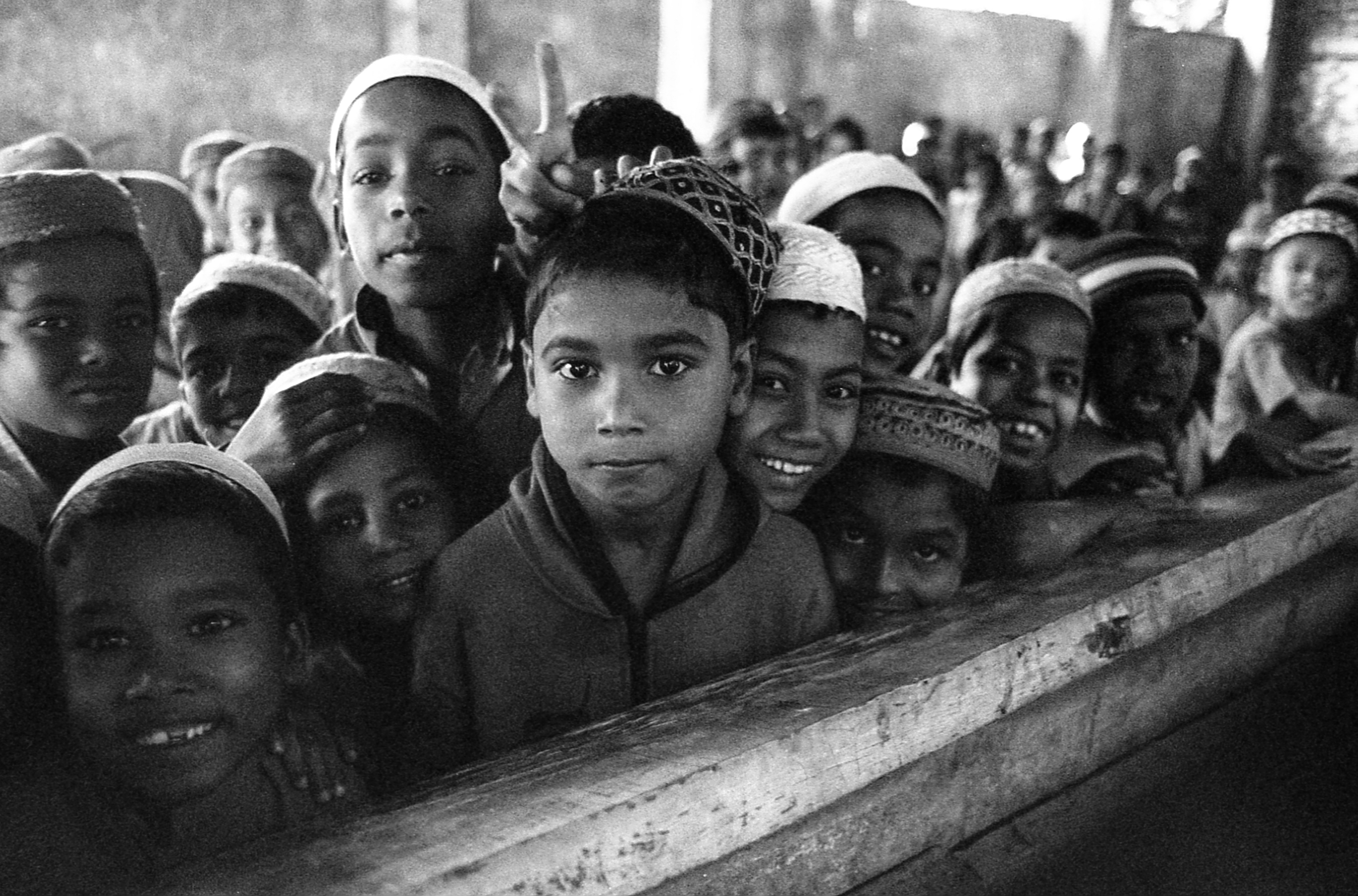
Shamlapur, Bangladesh. Primary students poke their heads out of the classroom during a morning break.
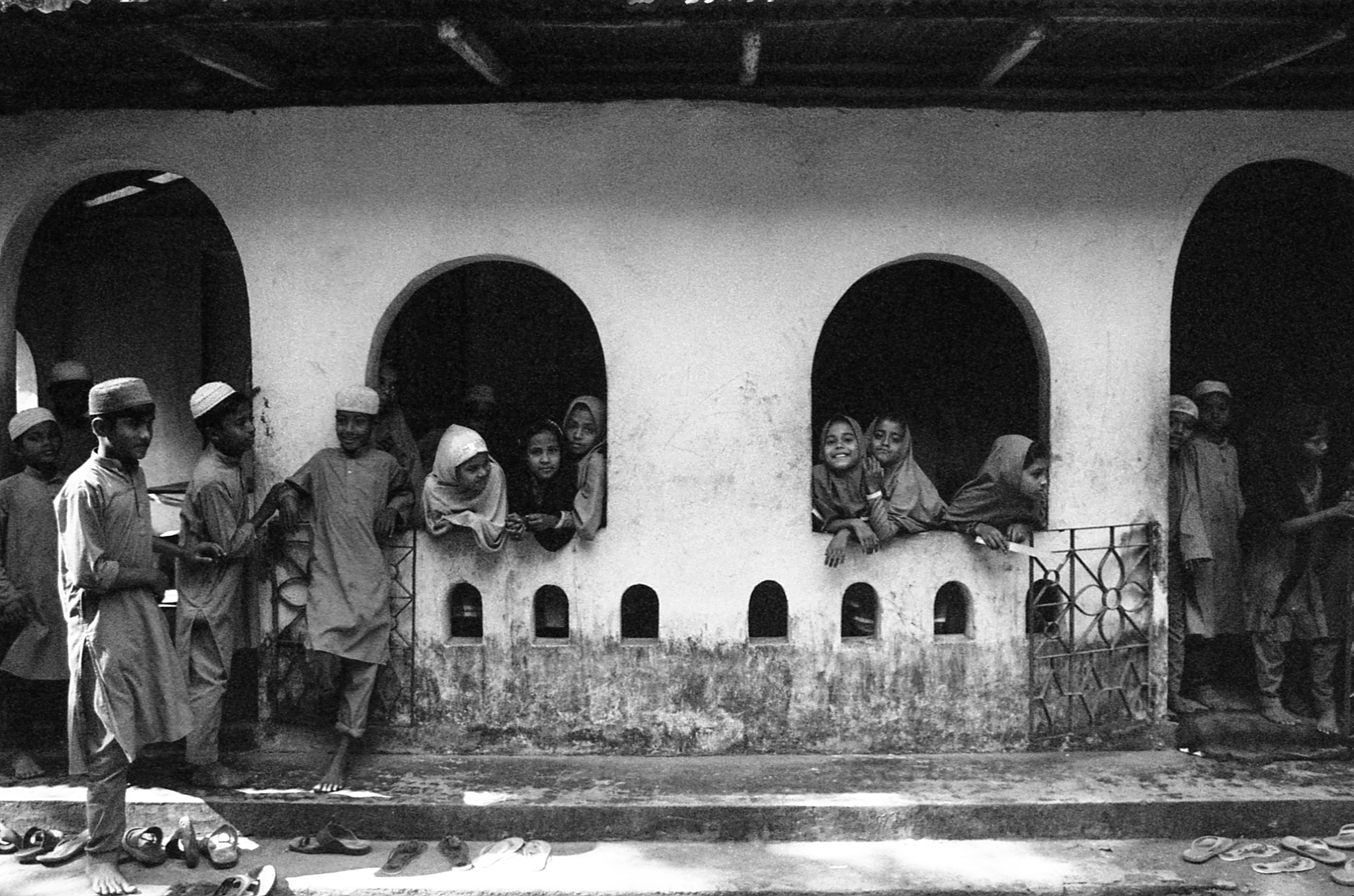
Shamlapur, Bangladesh. The older students hang around their classroom during a break.
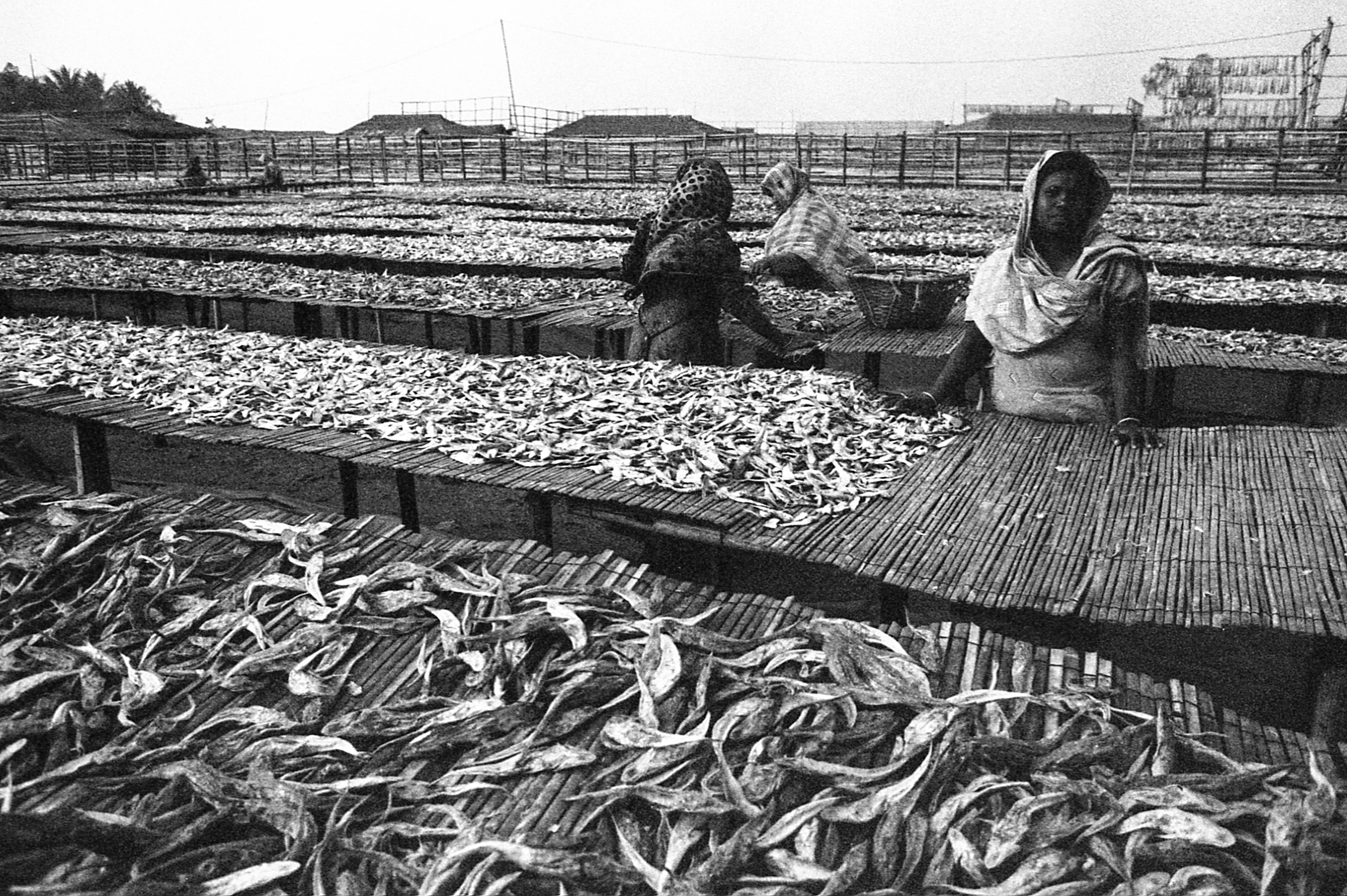
Nazirar Tek, Bangladesh. At the largest fish-drying yard in Bangladesh, outside of Cox's Bazar, some Rohingya families have found work and a home.

Nazirar Tek, Bangladesh. Coming back from the market.
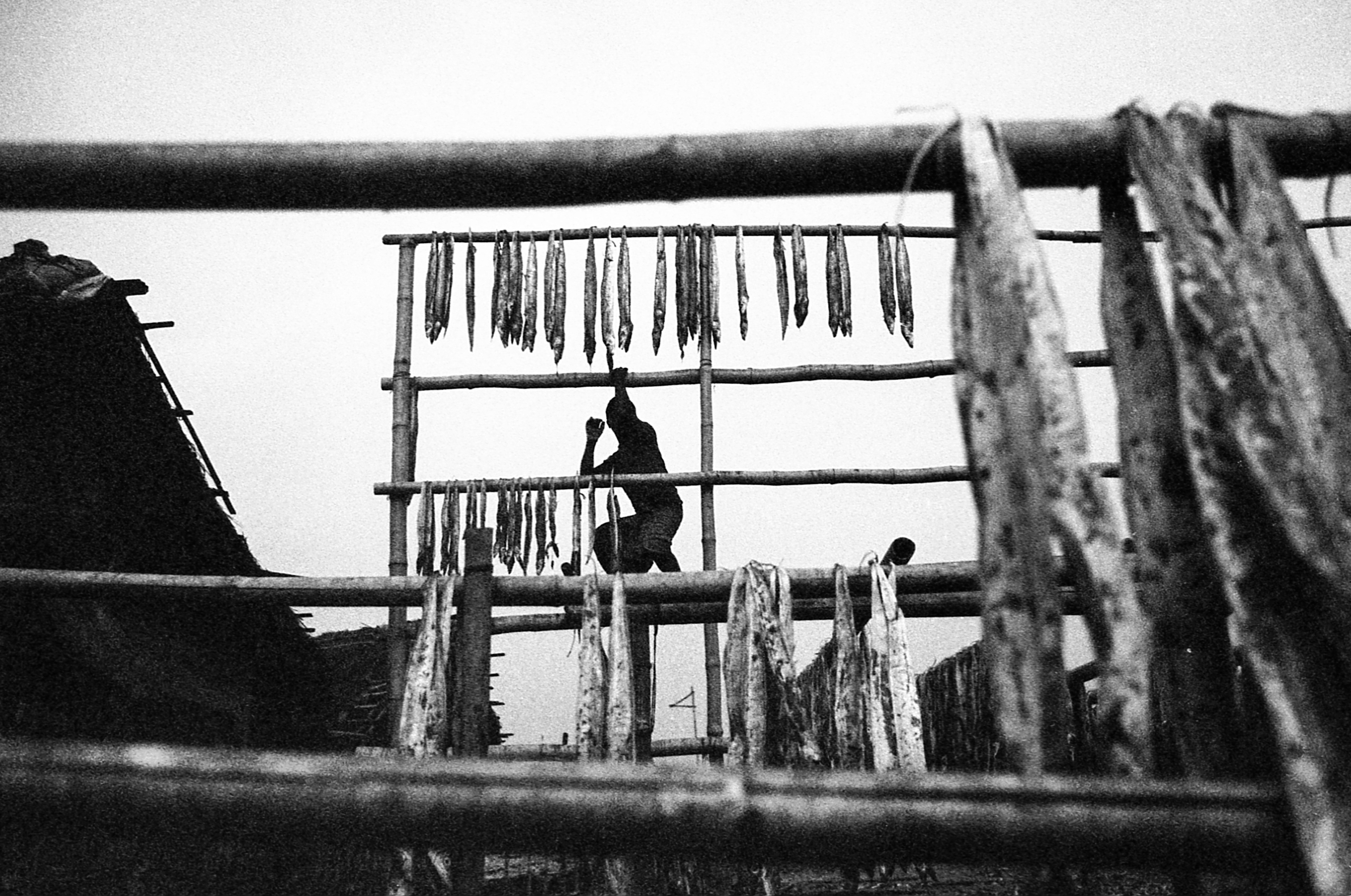
Nazirar Tek, Bangladesh. Hanging fish to dry up above the longhouses.
